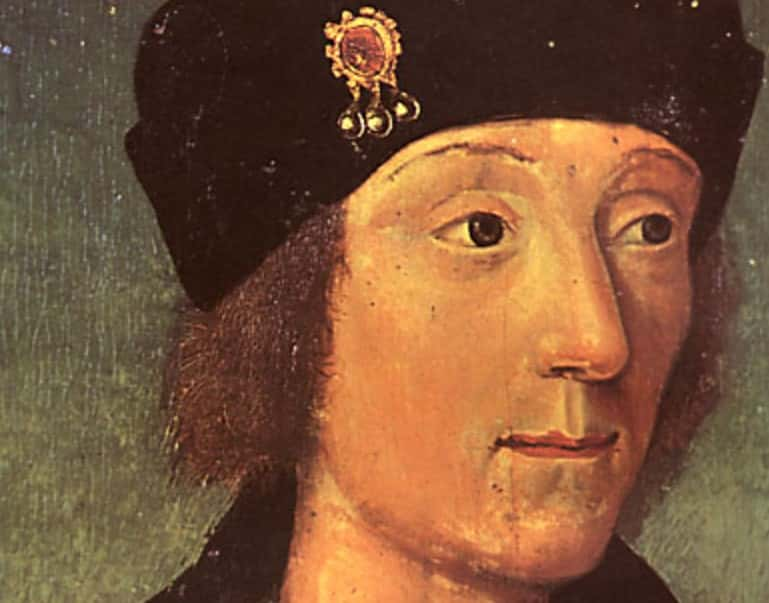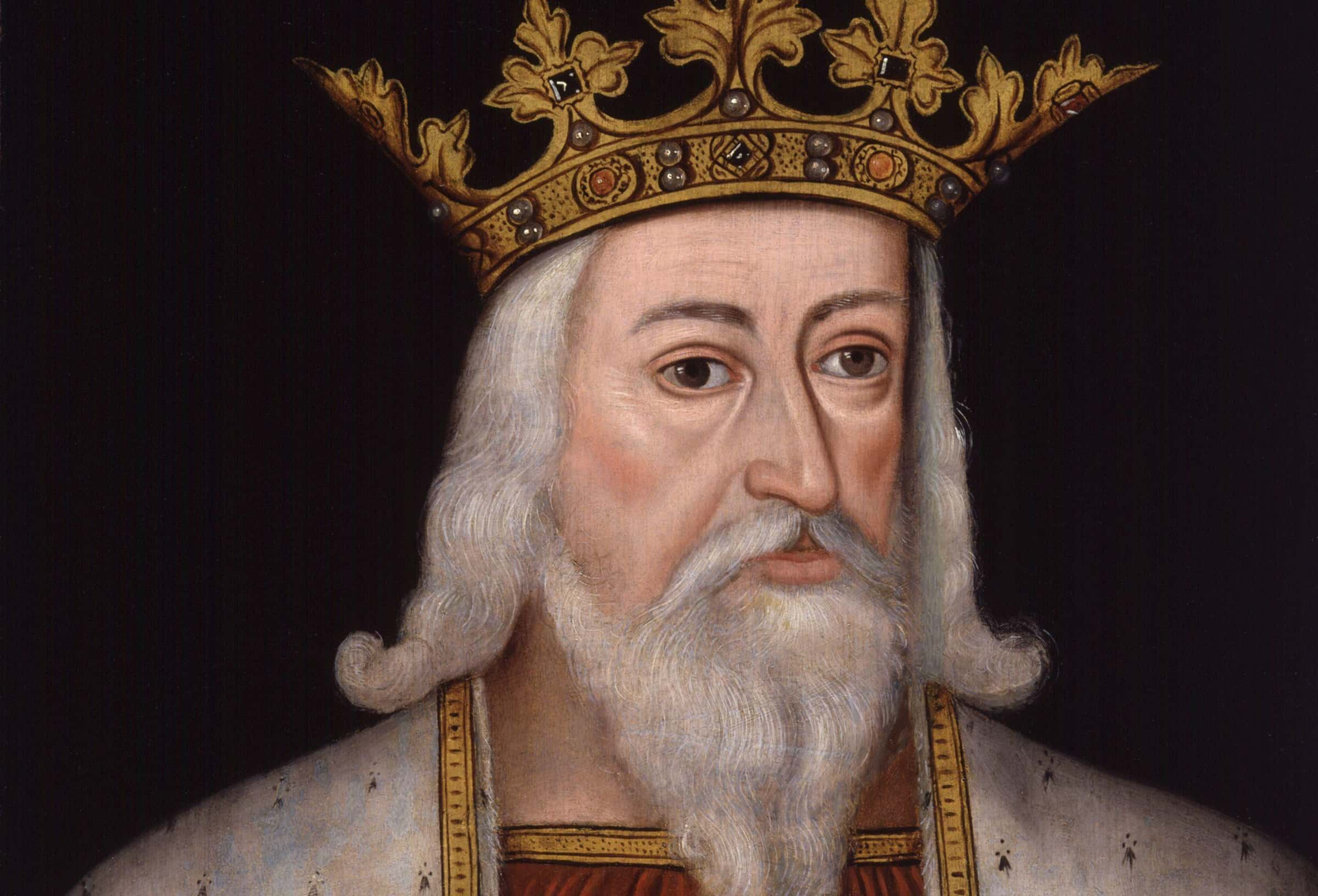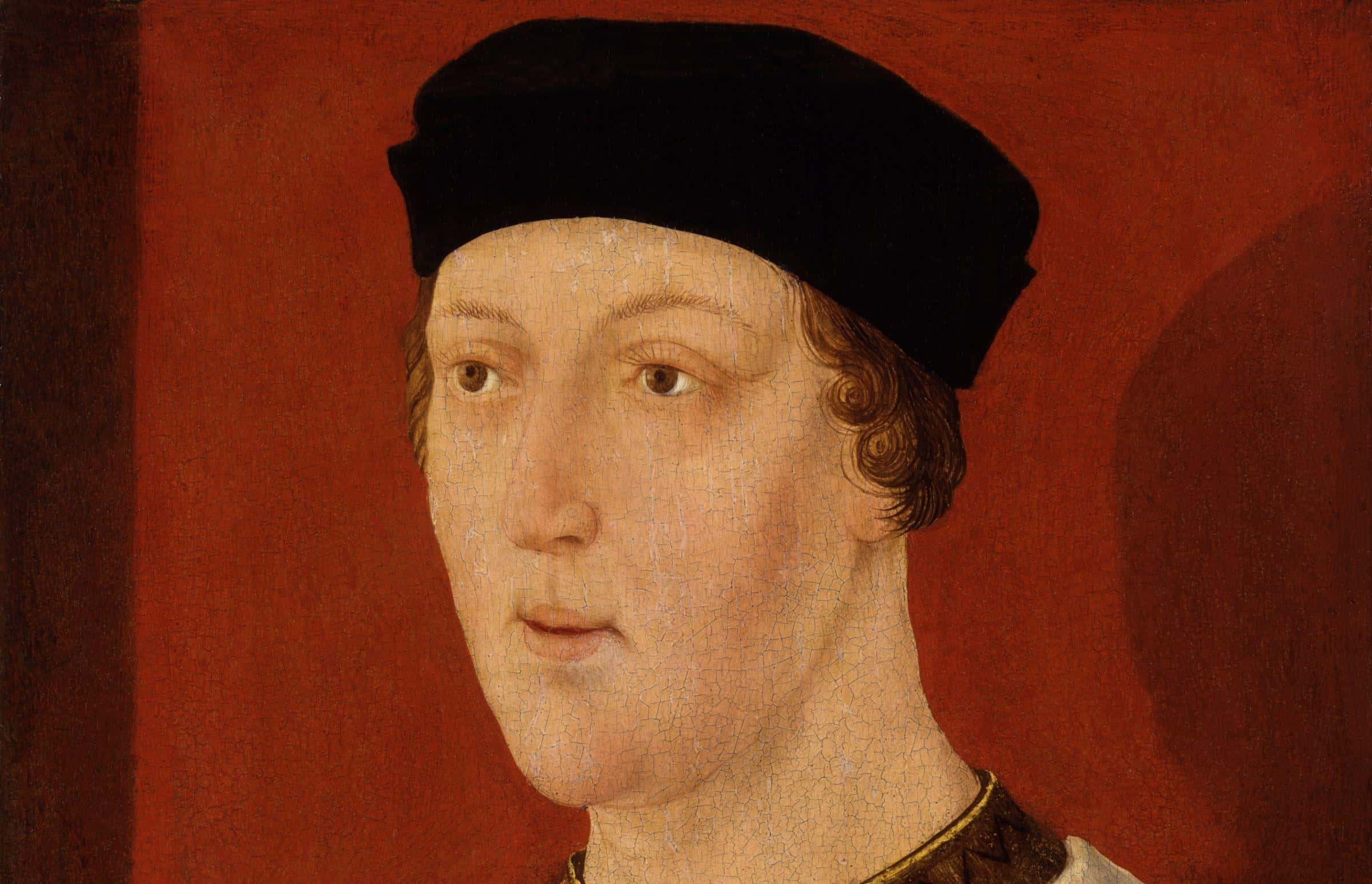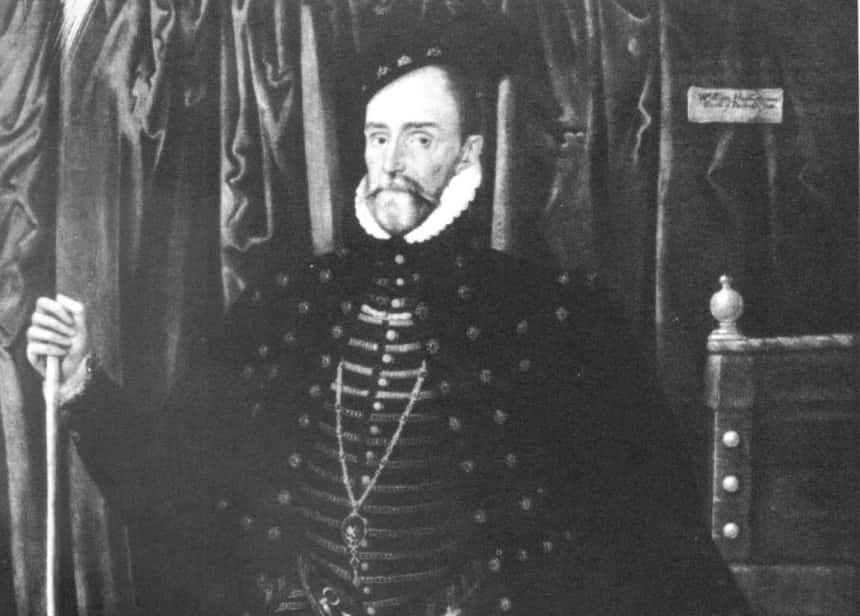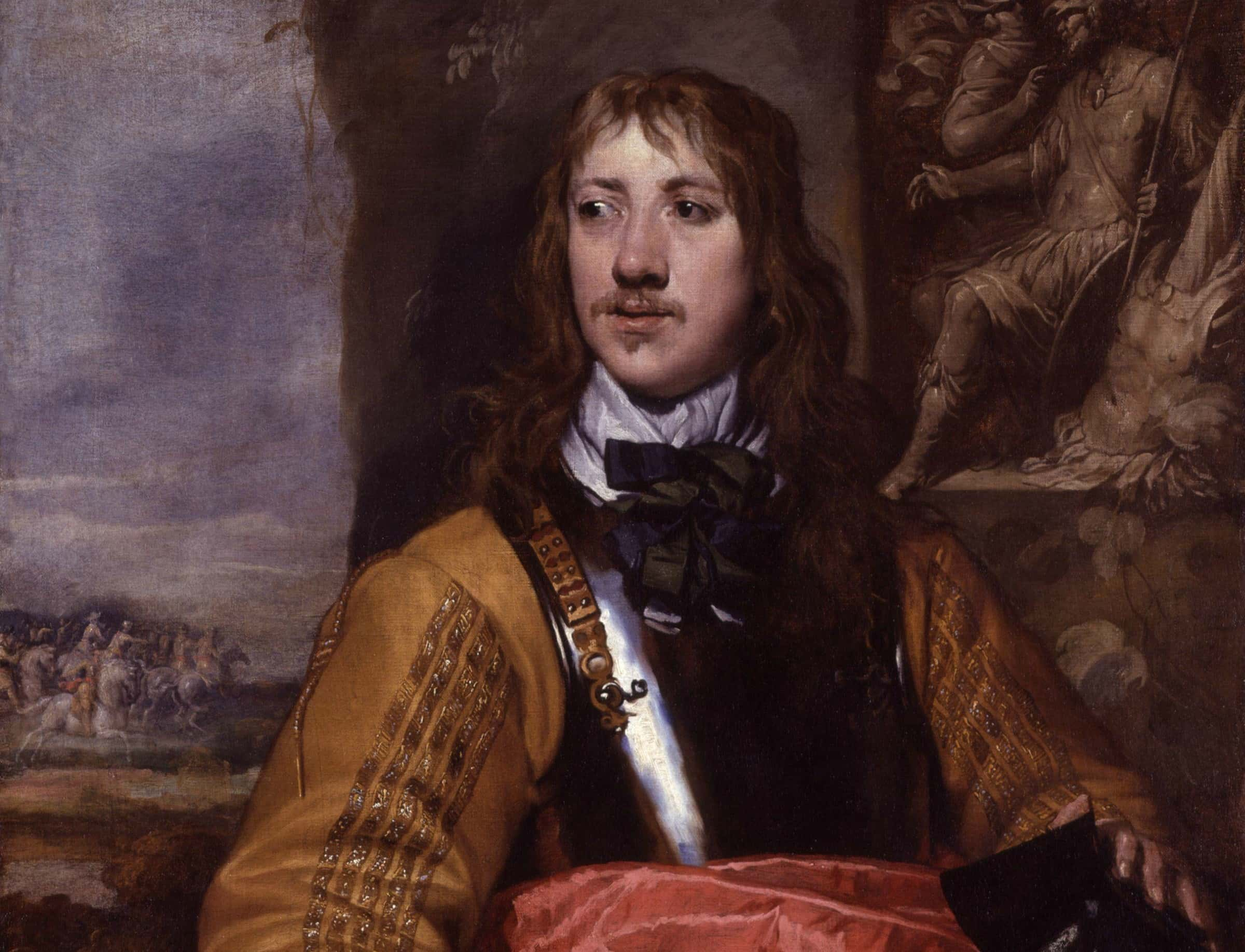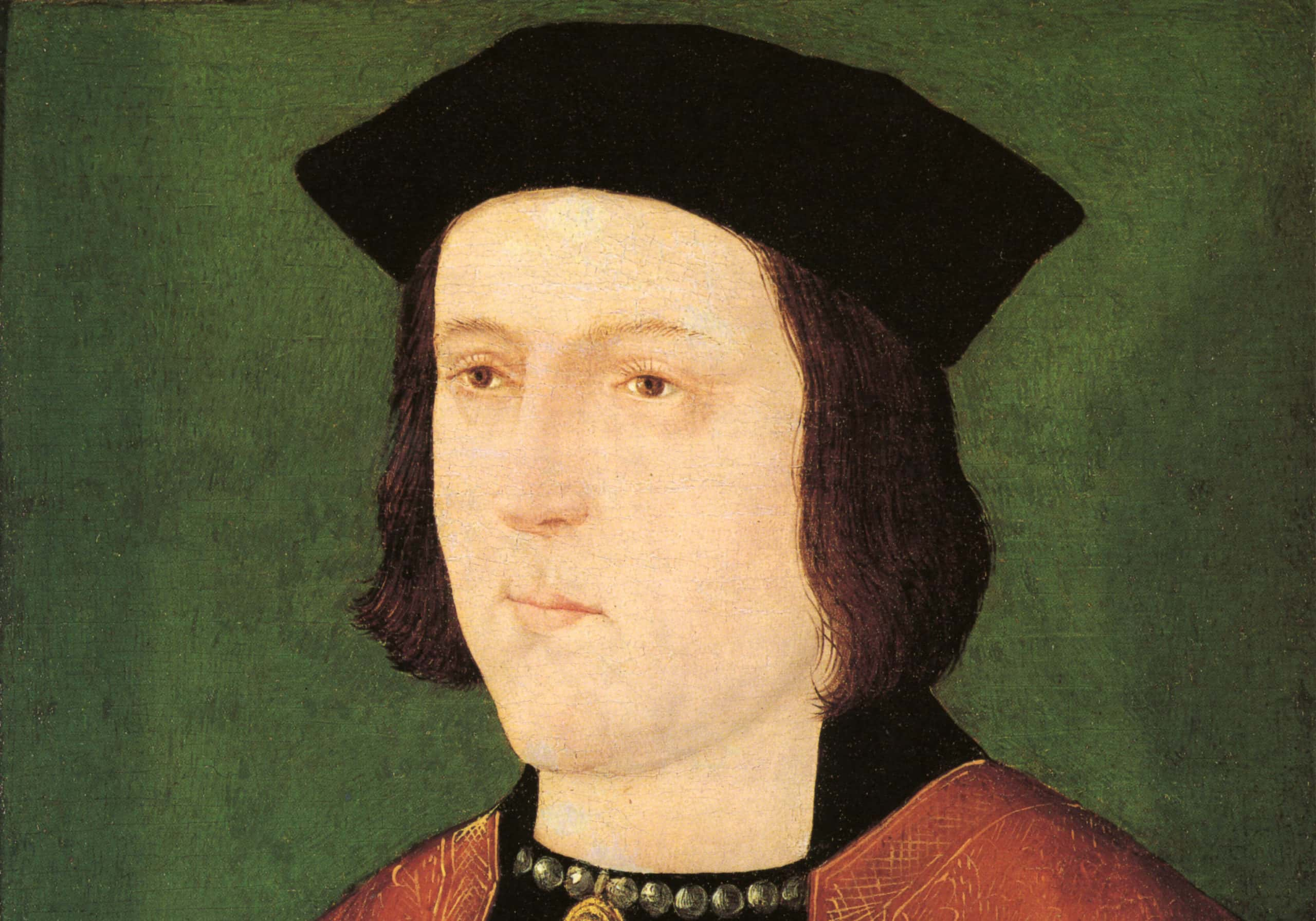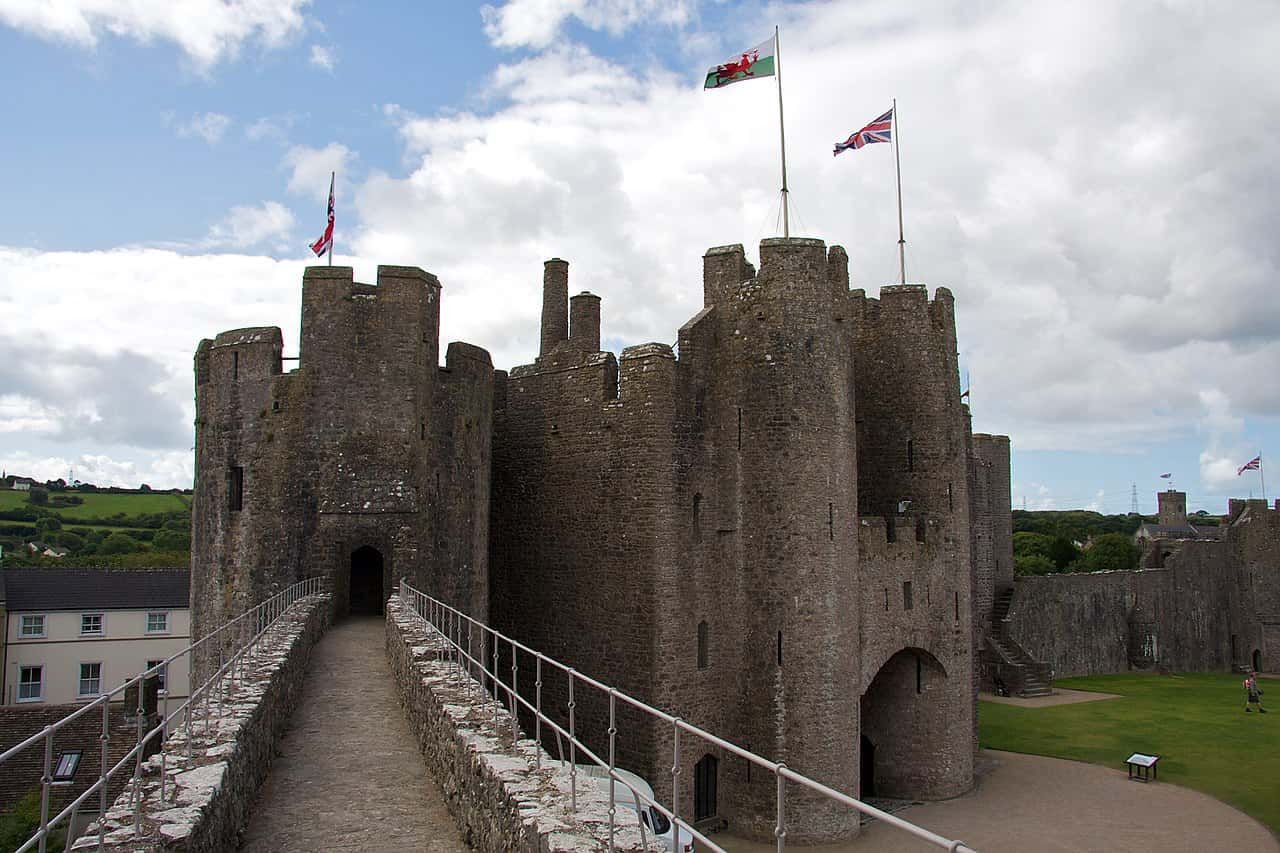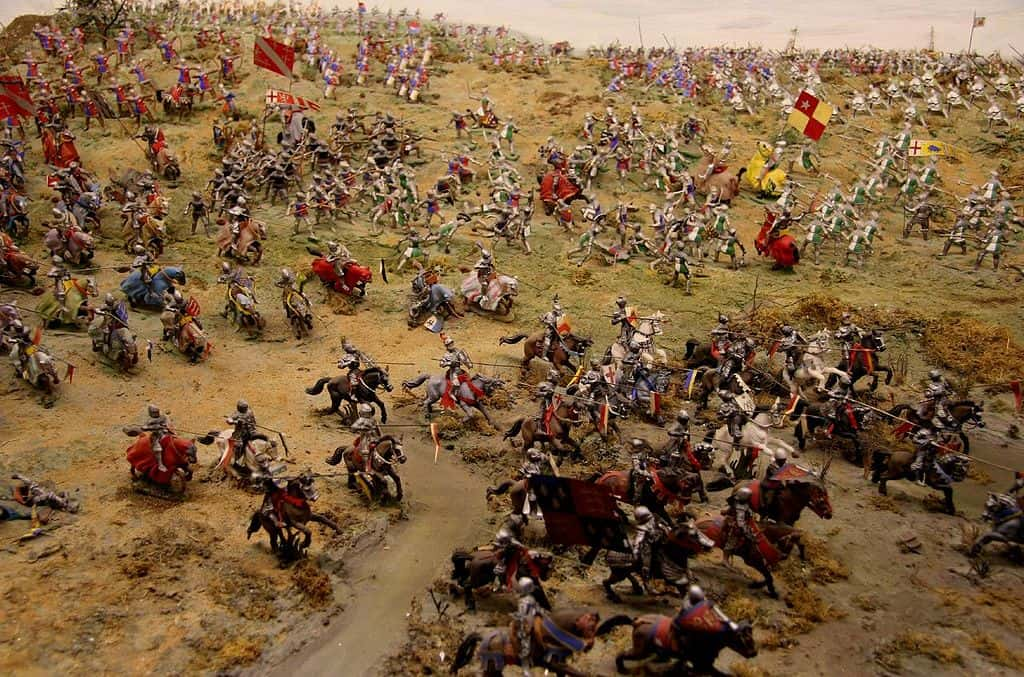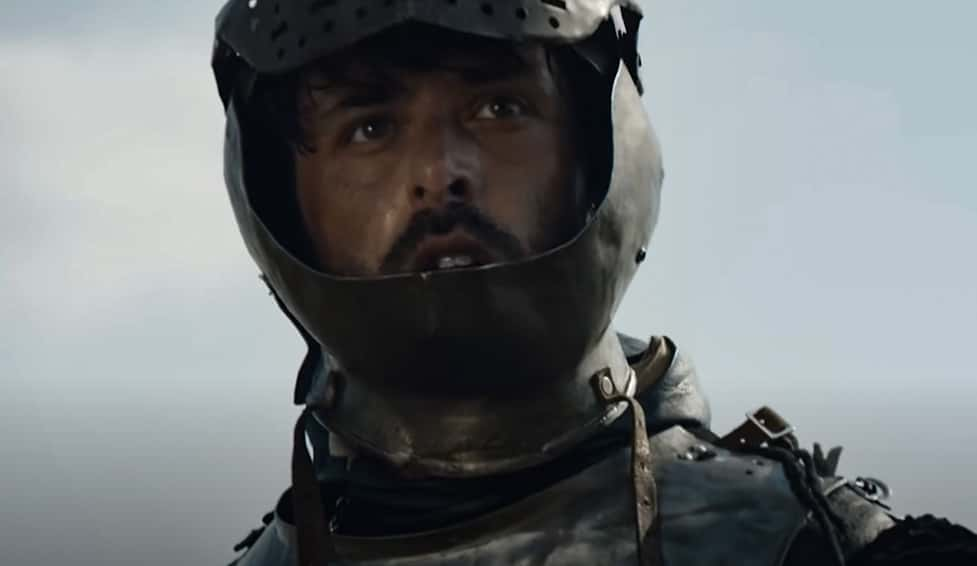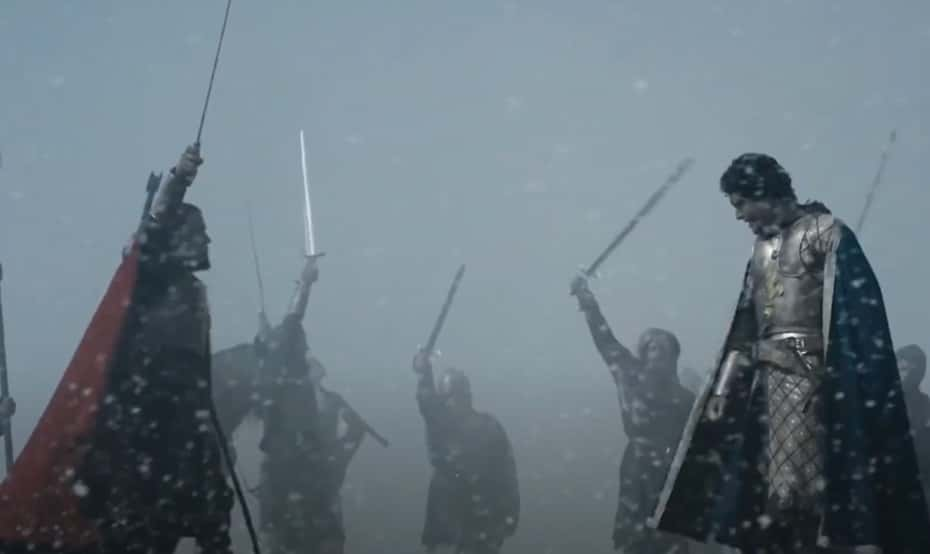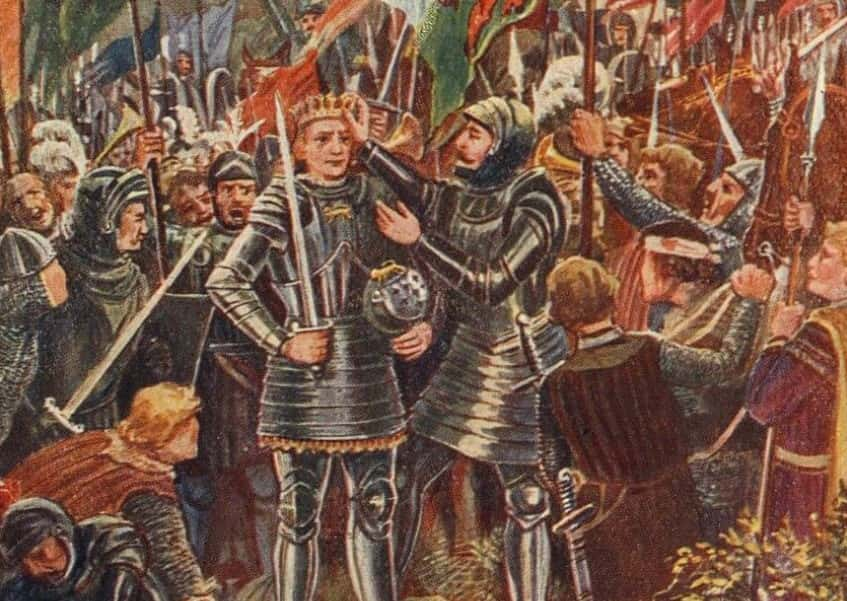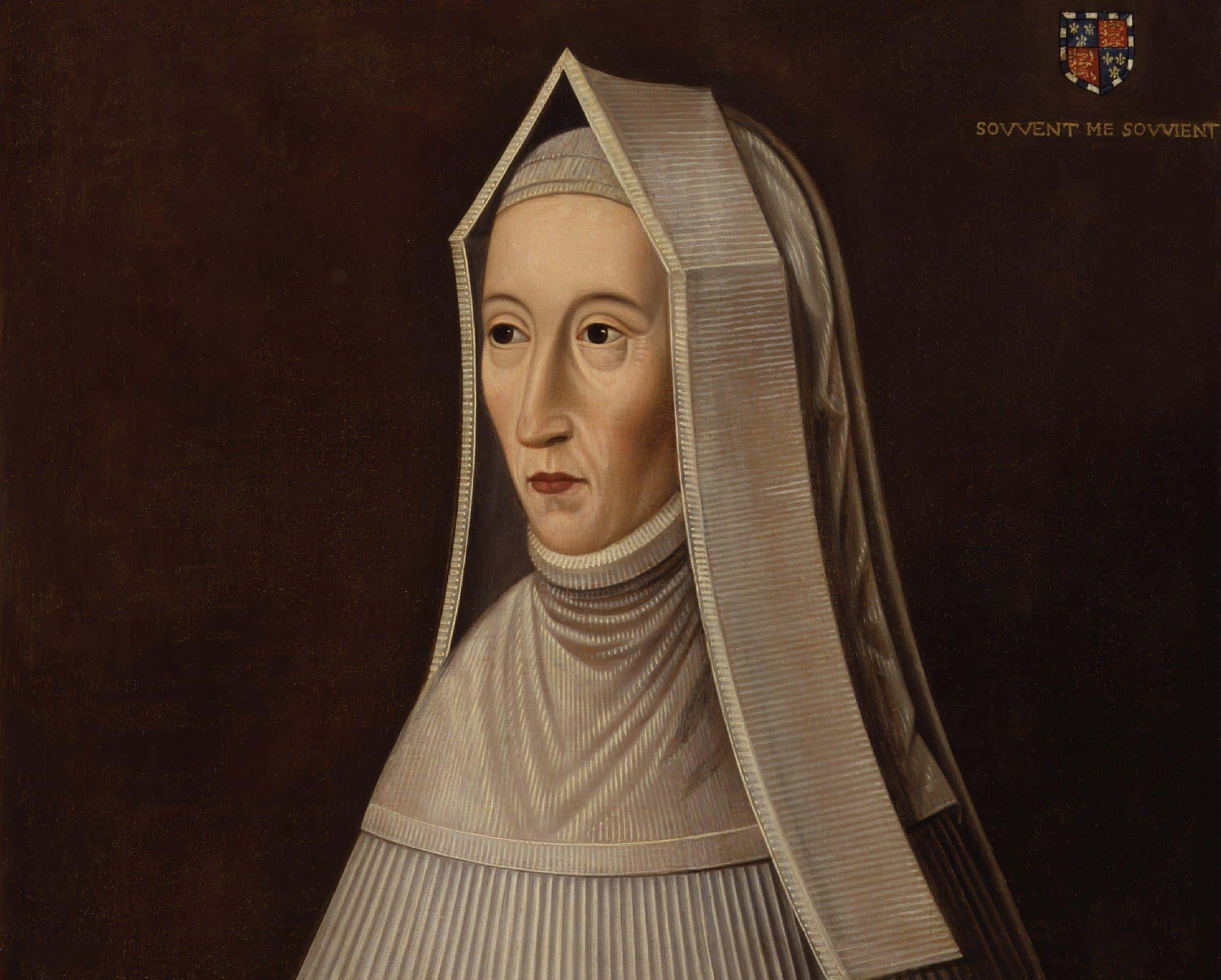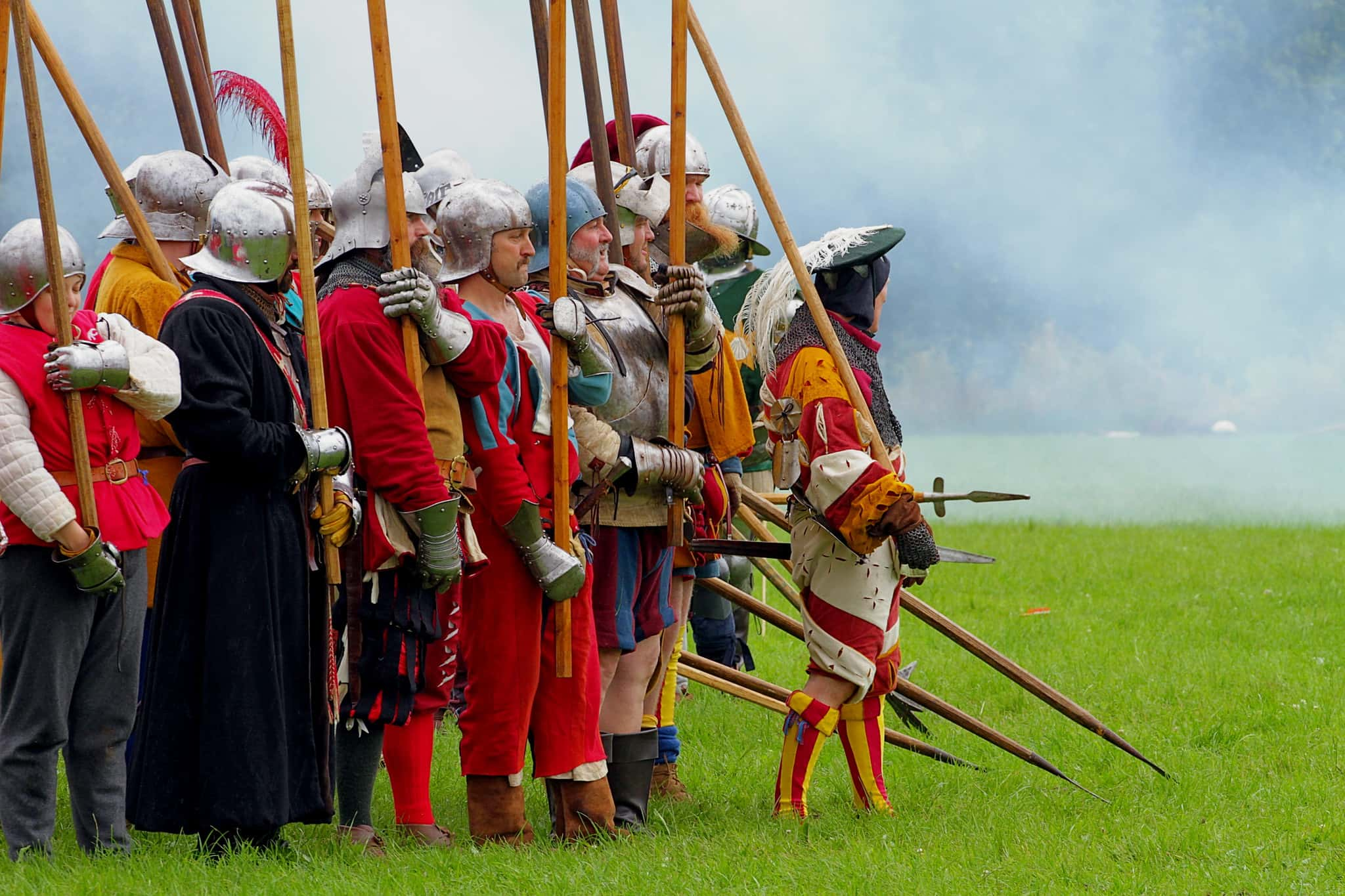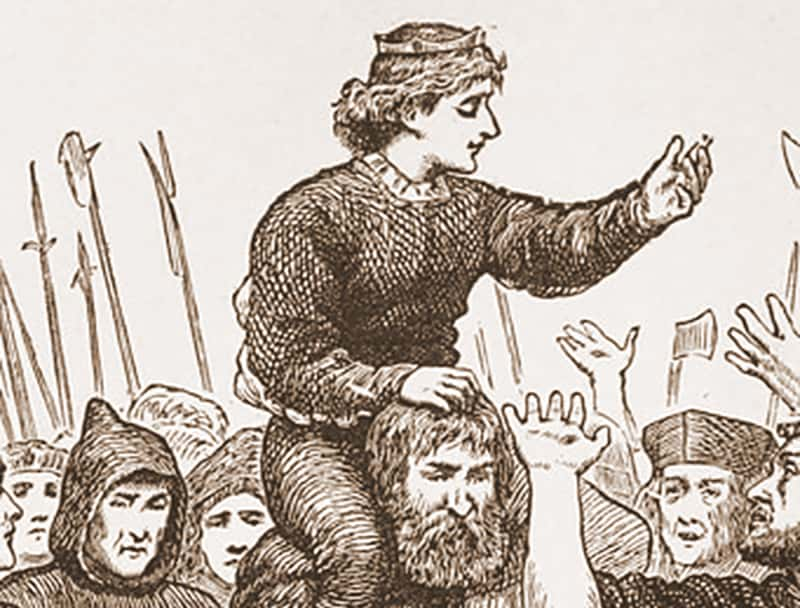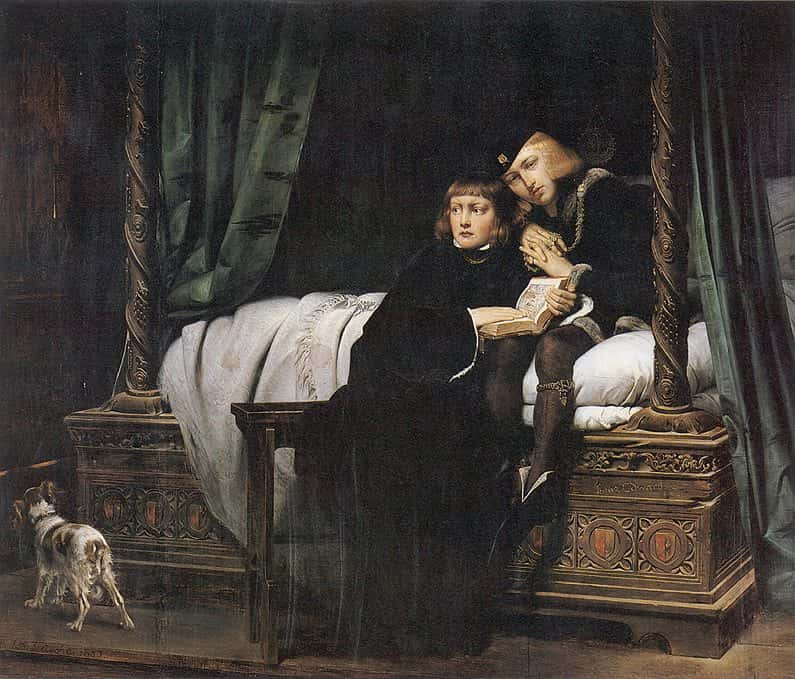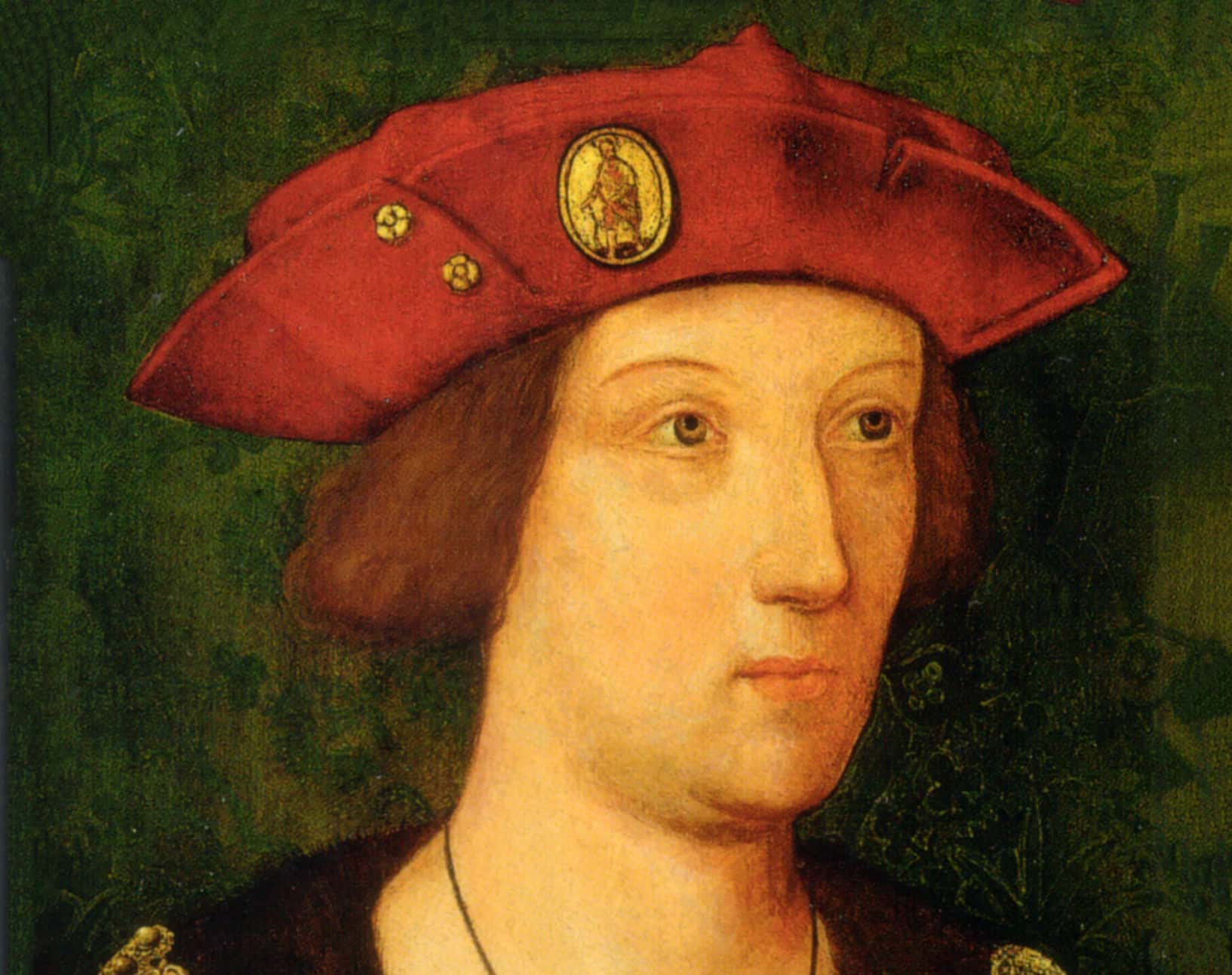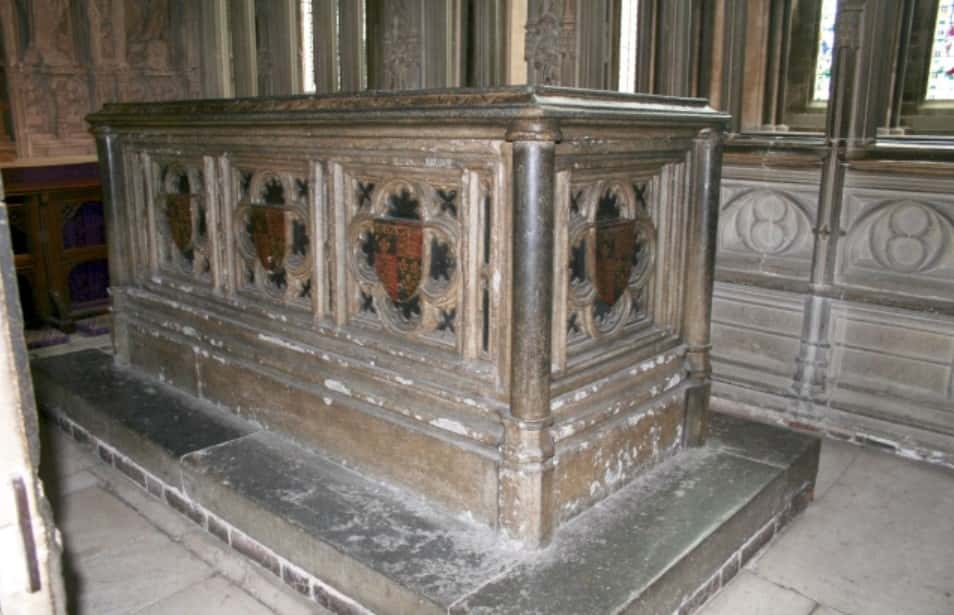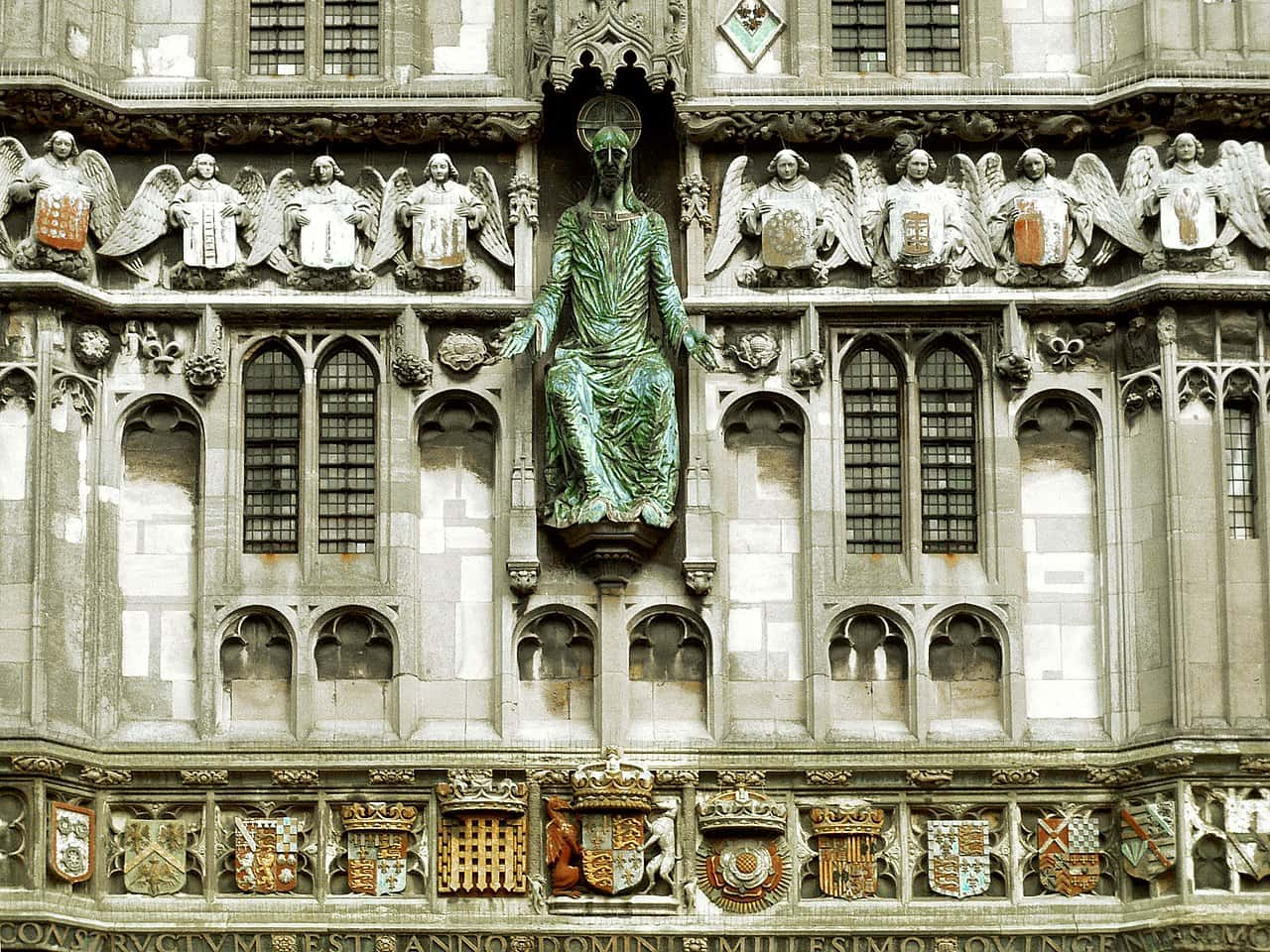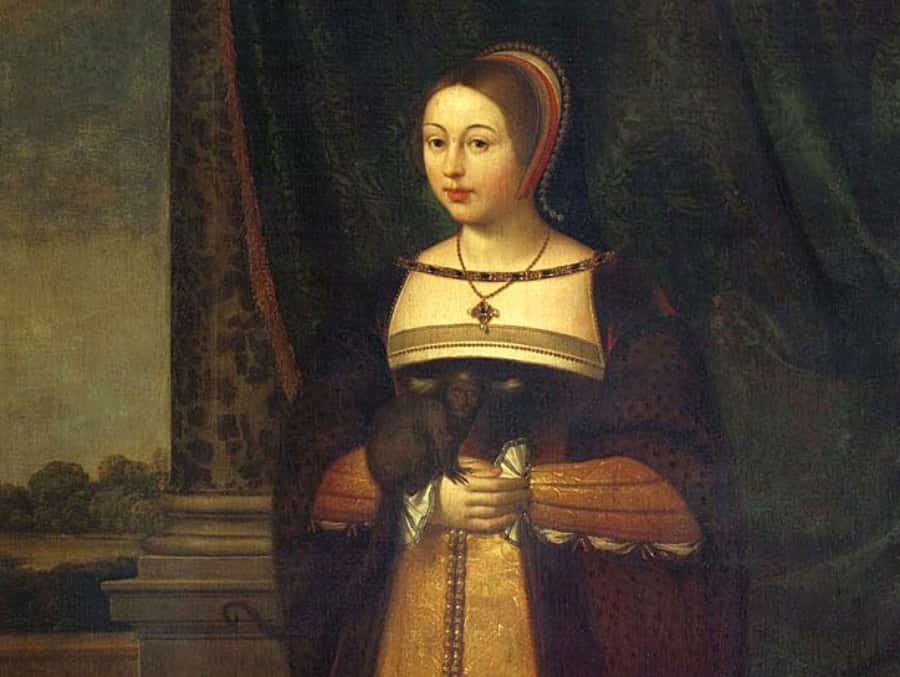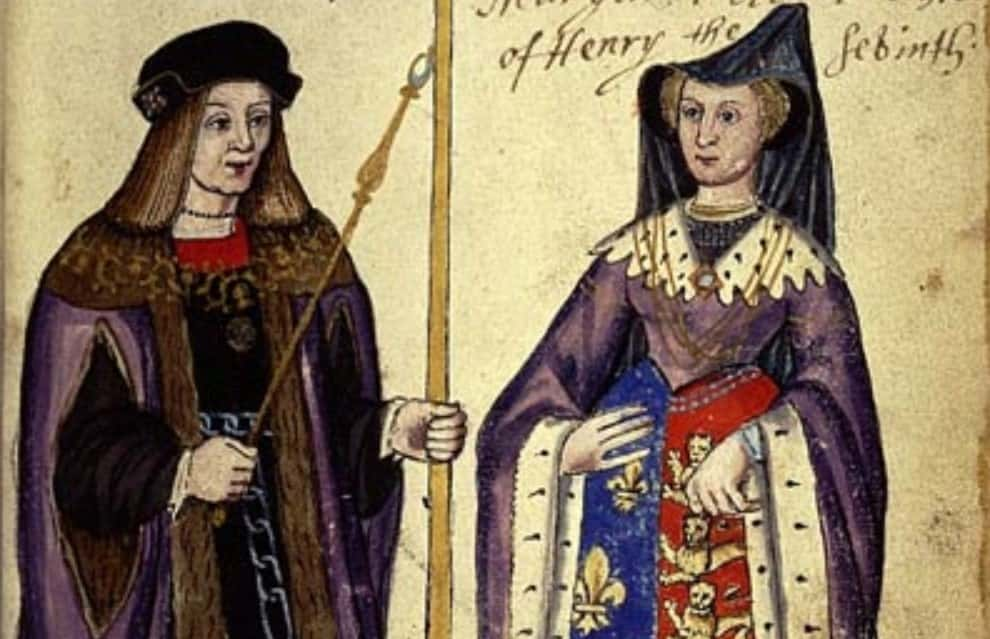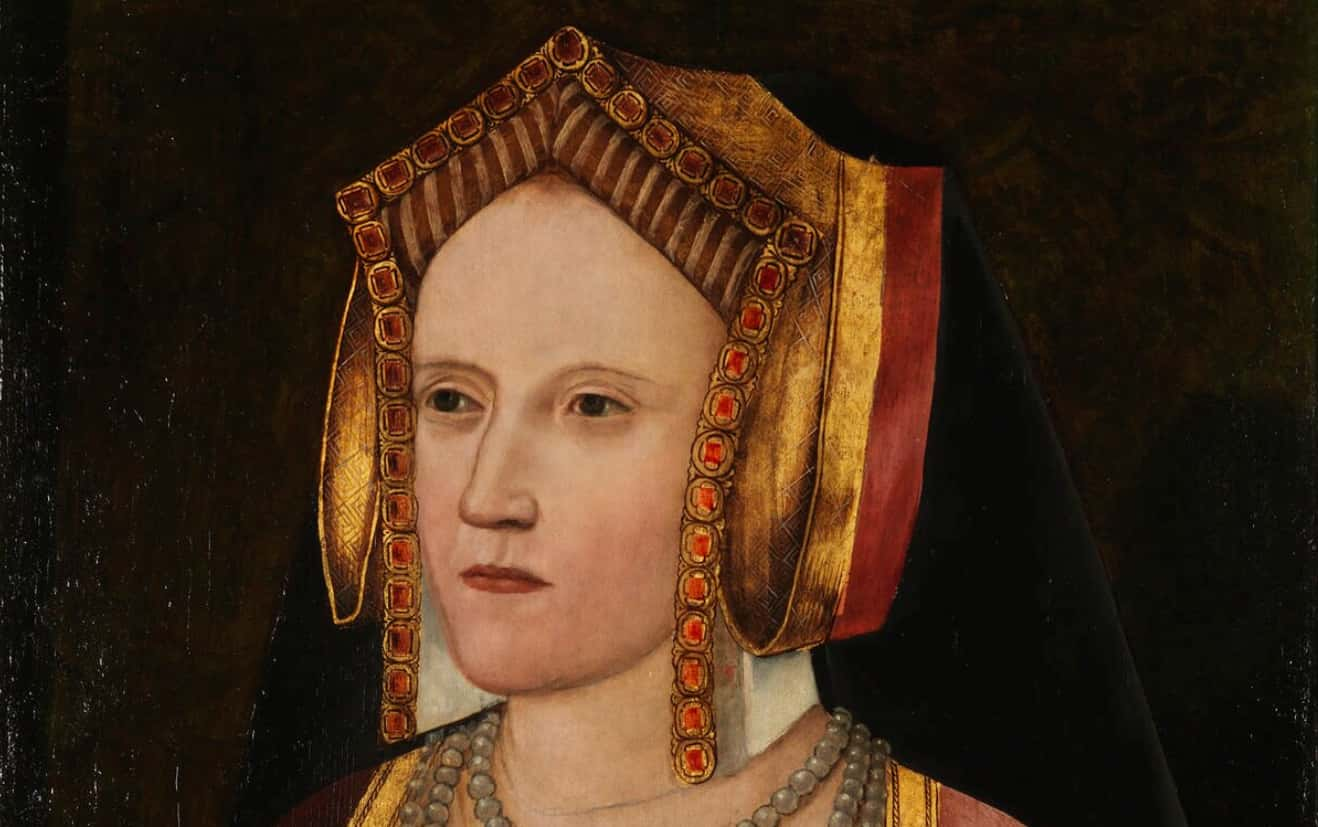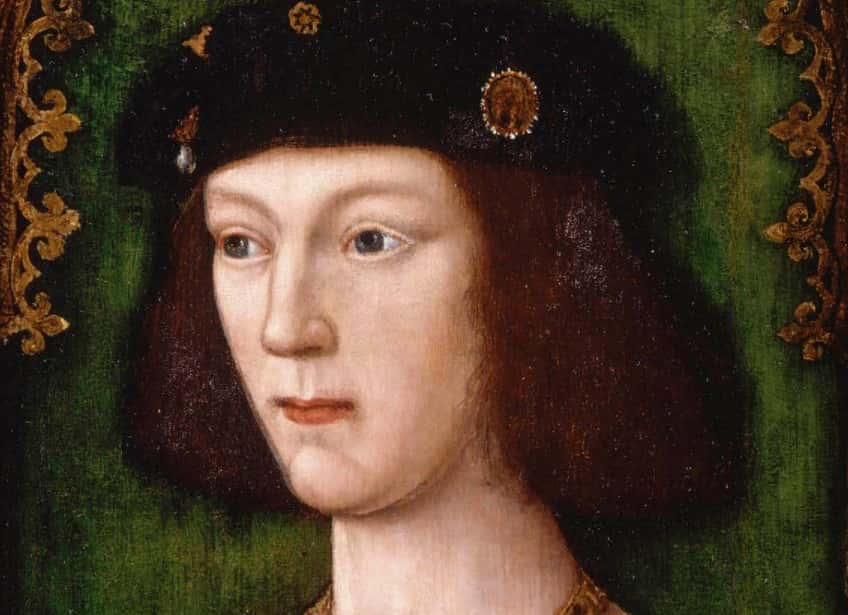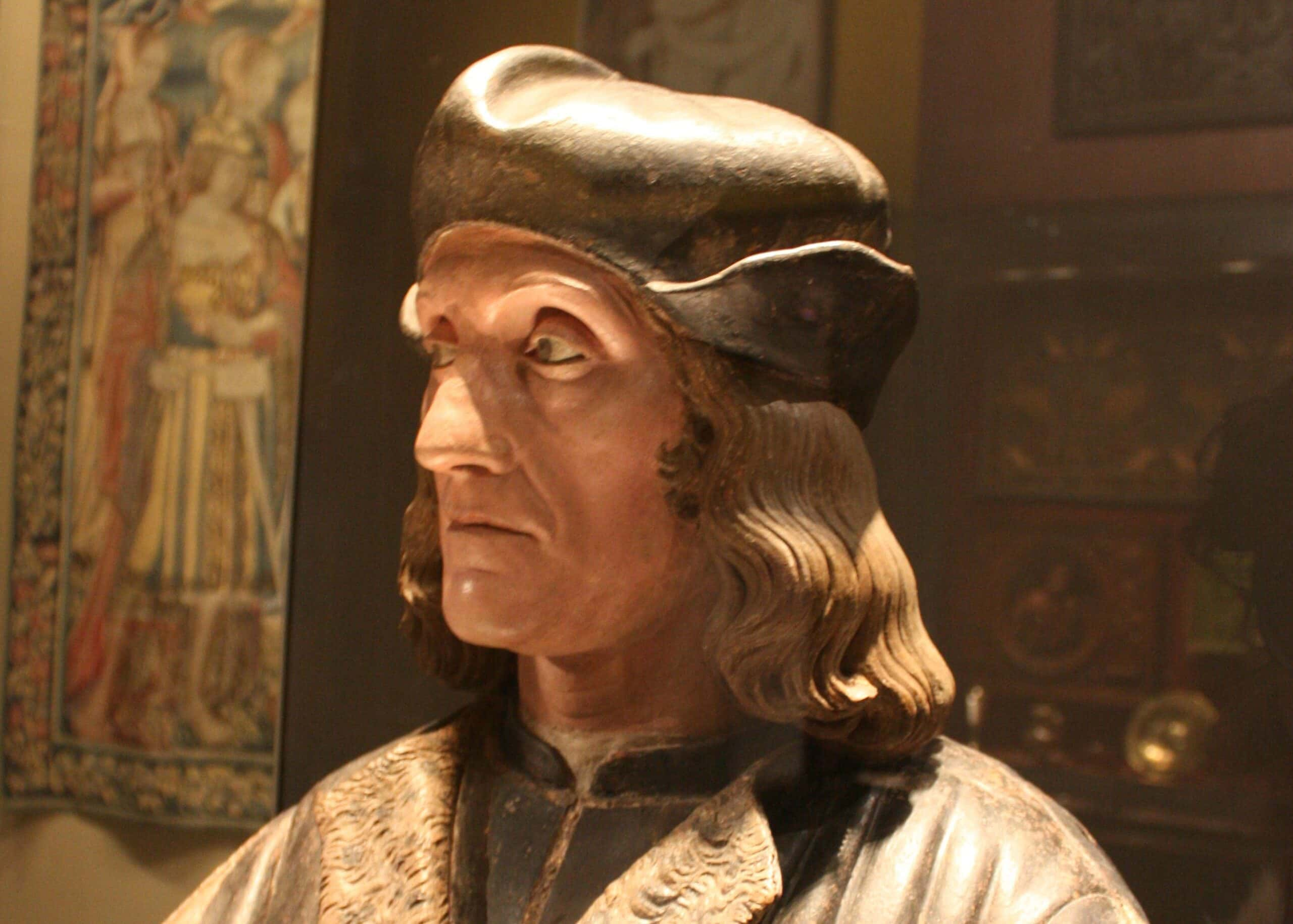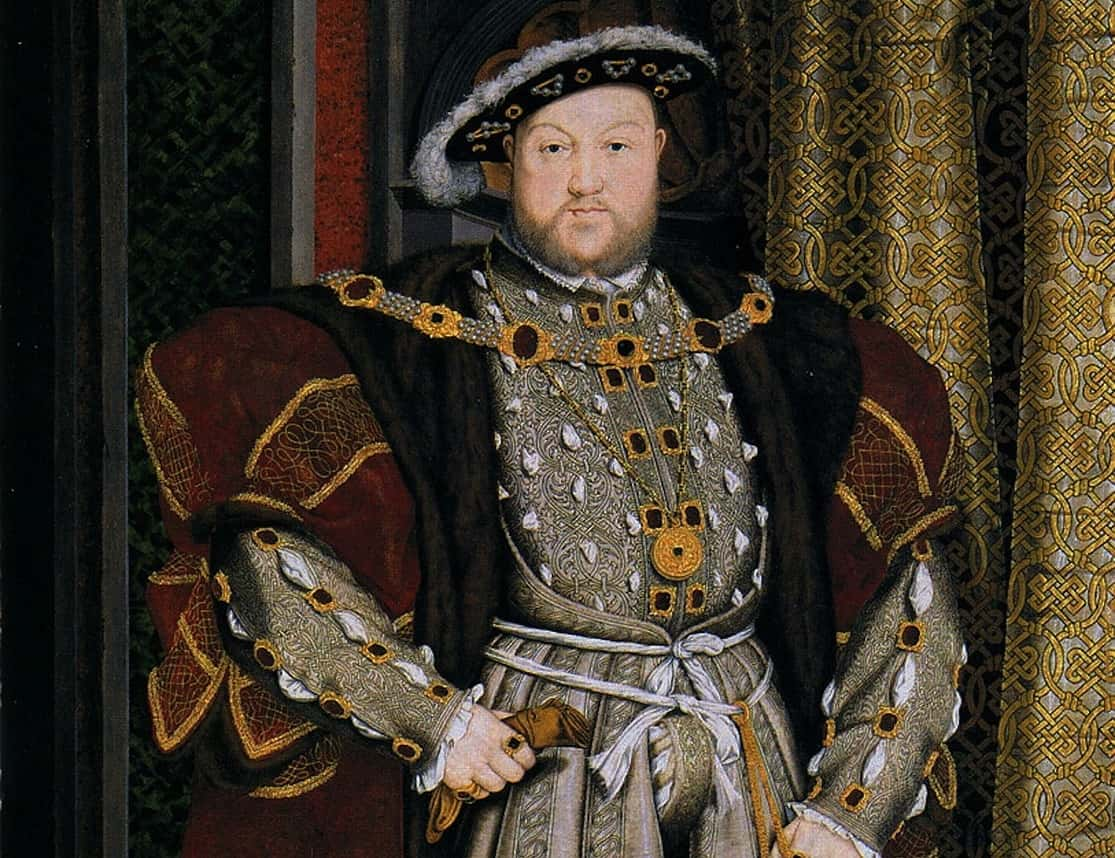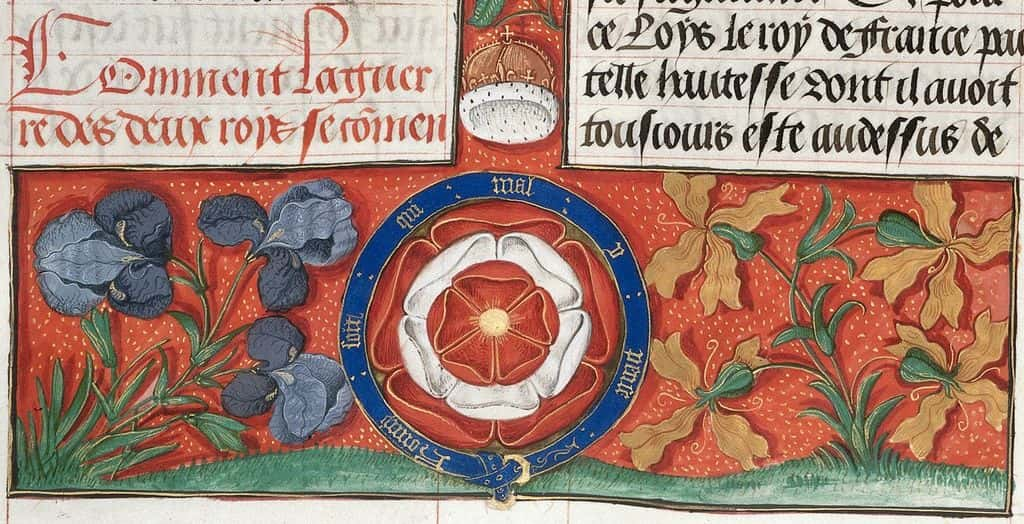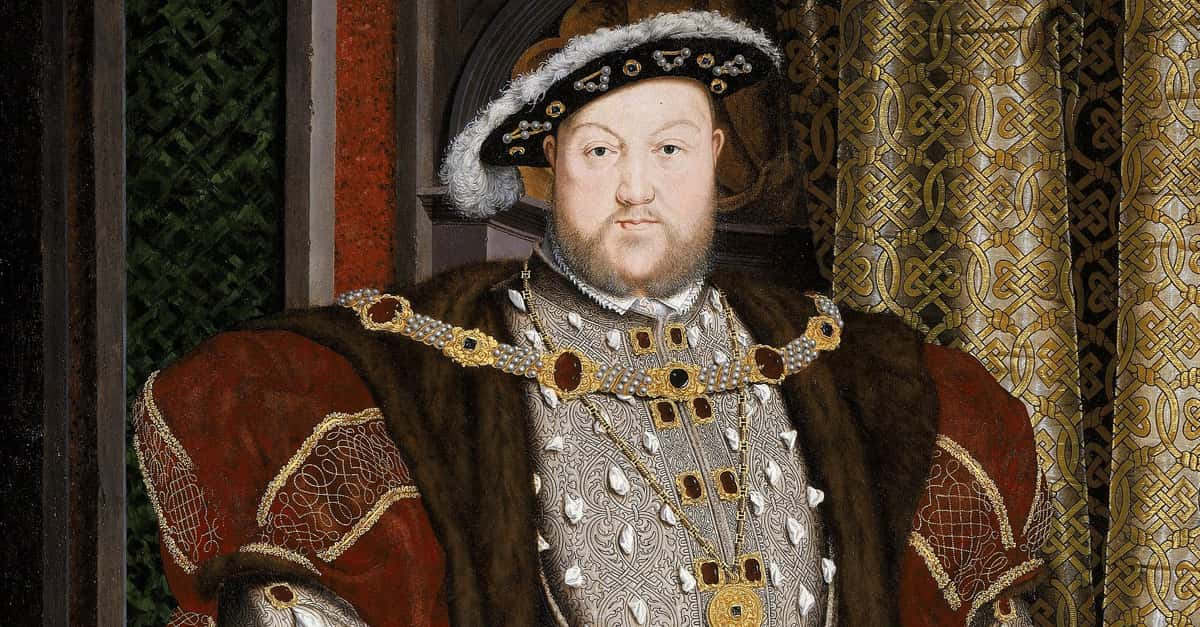The Tudors were some of the most compelling, powerful, and disturbing monarchs in history—and they began with an upstart nobody named Henry VII. The father of the Tudor dynasty turned England into a powerhouse, but his failings as a father created a monster. Where did it all go so wrong? Let's find out.
1. His Birth Was Harrowing
Henry VII's birth was a tragic and harrowing affair. His mother, Lady Margaret Beaufort, was only 13 years old at the time. The labor was excruciatingly difficult on Margaret's young frame. She barely survived, and the ordeal left her unable to bear any more children. But her pain wasn't only physical. A terrible tragedy made the experience so much harder to bear.

2. He Lost His Father
Henry VII came into the world as the Wars of the Roses raged—and the conflict started taking things from him before he was even born. His father, Edmund Tudor, fought for the House of Lancaster against the rival House of York. The Yorkists captured him not long after Margaret became pregnant, and he caught the plague and died in captivity soon after that.
Henry VII never knew his father—but his father's scandalous origins still had a huge effect on his life.
3. He Came From Humble Origins
The Tudors were an unknown family from Wales for most of their history. That all changed with Owen Tudor, whose bravery in battle earned him a place in court as squire to King Henry V. He must have been quite the catch, because after Henry V passed, Owen had an affair with the queen herself, Catherine of Valois. Some even claim the pair married in secret.
Owen and Catherine had a son: Edmund Tudor, the father Henry VII never knew. But when it comes to Henry VII's twisted family tree, this is just the beginning.
4. He Was A Nobody
At Henry VII's birth, if you'd have said that he'd be king one day, they would have laughed you out of the room. His regal grandmother aside, Henry had a laughably weak claim to the throne. His only direct connection to the royal line of succession came from Edward III...who was his great-great-great-grandfather. So, how the heck did this nobody become the King of England, founding one of the most legendary families to ever hold the throne?
It turns out, Henry VII wasn't the only Tudor who know how to get things done...
5. He Had A Guardian Angel
Henry VII likely wouldn't have even survived his childhood were it not for his uncle, Jasper Tudor. Jasper took it upon himself to protect his brother's 13-year-old widow and their infant son. Tudor brought them to his seat at Pembroke Castle, where Henry spent the early part of his life. However, it was only a matter of time before the chaos that engulfed England reached their doorstep.
6. His Angel Left Him
Wars tend to have winners and losers—and by 1461, it sure seemed like Henry's side were the losers. Edward IV captured the Mad King Henry VI and claimed the throne for himself. The news must have shaken Henry and his mother—but it was going to get even worse. With this new Yorkist king, men who'd fought for the Lancasters started fleeing England for their lives. Men like Jasper Tudor. He ran away to France, abandoning young Henry and his mother to their fates.
If Henry got to enjoy a few years of a peaceful childhood, all that was over now.
7. He Lived With The Enemy
A Yorkist earl by the name of Black William Herbert took over Pembroke Castle, keeping Henry there as little more than a captive. There aren't many records of Henry's time under Black William, but as a Lancastrian with royal blood in his veins, Henry was in great danger. The new Yorkist rulers might decide to wipe out the Lancastrian line completely—and that would include young Henry Tudor.
But here's the thing about the Wars of the Roses: Fortunes changed fast, and Henry's rollercoaster ride was just beginning.
8. His Childhood Was Terrifying
The infamous King Henry VIII grew up in the lap of luxury. His father, our boy Henry VII, couldn't have had it any more different. He spent eight long years living under the enemy, never quite feeling safe or secure. By 1469, he was 12 years old, and had known nothing but captivity. Well, his suffering was near its end. William Herbert was called to battle, where he was captured by Lancastrian forces and executed.
The tides were beginning to turn for Henry VII—and life was about to get even better.
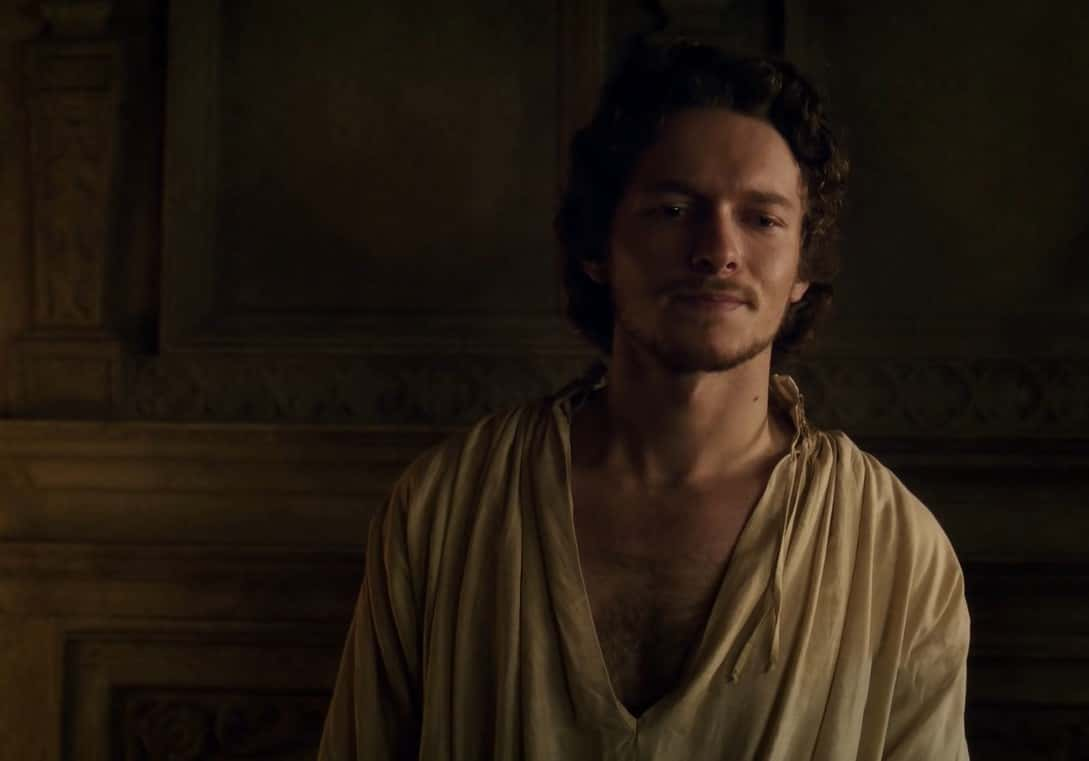 The White Princess (2017), Starz!
The White Princess (2017), Starz!
9. He Went To Court
The pendulum swung back to the House of Lancaster, and in 1470, Richard Neville, the Kingmaker, managed to defeat Edward IV and put Henry VI back on the throne. Henry's uncle Jasper came back from exile, and he even brought Henry to live at court with him. After such a miserable childhood, things were finally looking up for little Hank.
Then, in the blink of an eye, it all fell apart.
10. His Fortunes Changed Again
Henry VI's second stint on the throne lasted all of...six months. Just like that, Edward IV came storming back to England, wiped the floor with the House of Lancaster, slew the Kingmaker in battle, and took back the throne. Henry's mother Margaret witnessed all of this happening and saw the writing on the wall—so she made a heartbreaking decision.
If Henry had felt alone at Pembroke Castle, that was nothing compared to what came next.
11. His Mother Sent Him Away
Margaret Beaufort expected great things from her son, and she knew that he wouldn't get anywhere trembling beneath a Yorkist king in England. When she realized that her brother-in-law Jasper was going to flee to France yet again, she begged him to take young Henry with him. There, Jasper could give him the upbringing she couldn't while trapped in England.
In a devastating parting, Henry bade farewell to his young mother—unaware that he wouldn't see her face again for 14 long years.
12. He Found A New Protector
Jasper took Henry to Brittany, where they lived under the protection of Duke Francis II. Francis felt little love for King Edward IV, and protected Henry along with several other Lancastrian exiles. It sure beat living under Black William back at Pembroke Castle—at least, it did for a while. After five years, Francis fell ill. His advisors took over, and they saw Henry and the other Lancastrians as a big fat bargaining chip.
Henry was about to be thrown back into the fire.
13. They Tried To Sell Him Out
Francis' advisors wanted to get into Edward IV's good books, and what better way to hand over a bunch of Lancastrian exiles? That's how Henry found himself in the hands of English envoys at a Breton port. His five years of freedom were officially over—or were they? You see, Henry was a man now. He had a few devious tricks up his sleeve...
 The White Princess (2017), Starz!
The White Princess (2017), Starz!
14. He Bought Himself Time
The English envoys were preparing to set sail with their Lancastrian captive when Henry suddenly clutched at his stomach in pain. He cried out about excruciating cramps and buckled over. His confused captors gave him time to recover, but by the time he was "better," the tide had gone out and they'd missed their chance to sail. Of course, the cramps had been a ruse to buy Henry time.
He still needed a miracle to save his skin though—thankfully, one was coming.
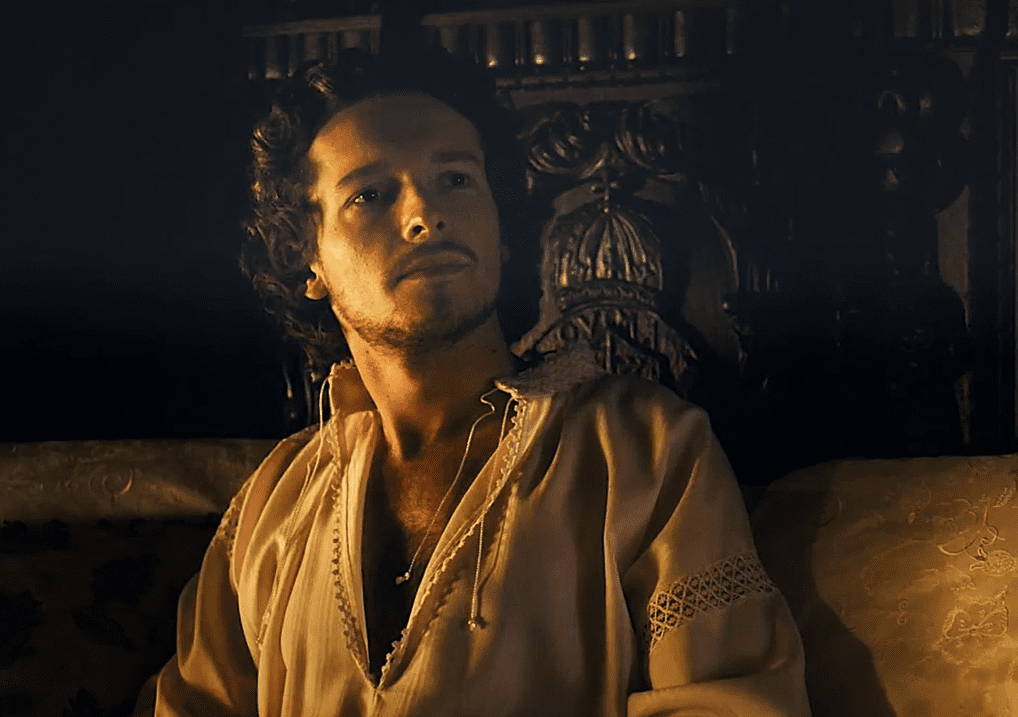 The White Princess (2017), Starz!
The White Princess (2017), Starz!
15. He Got Away
One of Henry's friends, a young Breton noble, Jean du Quelennec, arrived and announced that Duke Francis had recovered, and that the deal was off. The English envoys didn't plan on listening, but in the confusion of Jean's arrival, Henry had snuck away from his captors and claimed sanctuary in a monastery. There he remained until the English were forced to board their ships and sail back across the channel.
Henry VII remained free to live and fight another day—and it's a good thing, too. Pretty soon, the entire House of Lancaster would rest on his shoulders.
16. He Was All They Had Left
The Wars of the Roses went absolutely horribly for the House of Lancaster—at least at first. By 1483, every single male heir had perished in the conflict. Well, everyone but our pal Henry Tudor. Though we've gone over how laughably weak his claim to the throne was, he was all the Lancastrians had left. His odds were slim, but the Lancaster wanted to take back the throne, he was their only shot.
Then, after the infamous events of 1483, his chances got a whole lot better.
 The White Princess (2017), Starz!
The White Princess (2017), Starz!
17. He Got His Chance
It seemed to just about everyone in England that the Wars of the Roses had long since concluded—but they didn't take Richard III into account. When Edward IV passed, his brother Richard did the unthinkable. He stole the throne from Edward's children, the rightful heirs. He locked the boys in the Tower of London and became King Richard III. His nephews were never seen or heard from again.
Many in England, loyal to Edward, despised Richard III for his treachery. Nobles throughout the kingdom were ready to rise up and take the throne back from this new usurper king—and who do you think they looked to?
18. His Mother Talked Him Up
Henry VII hadn't seen his mother in over a decade, but that doesn't mean she forgot about him. Margaret Beaufort may have married a Yorkist to save her own skin, but she was still a Lancaster at heart. She actively promoted the idea that her son Henry, the last remaining Lancastrian claimant to the throne, might take the throne from Richard III.
She even had an utterly brilliant plan to make it happen.
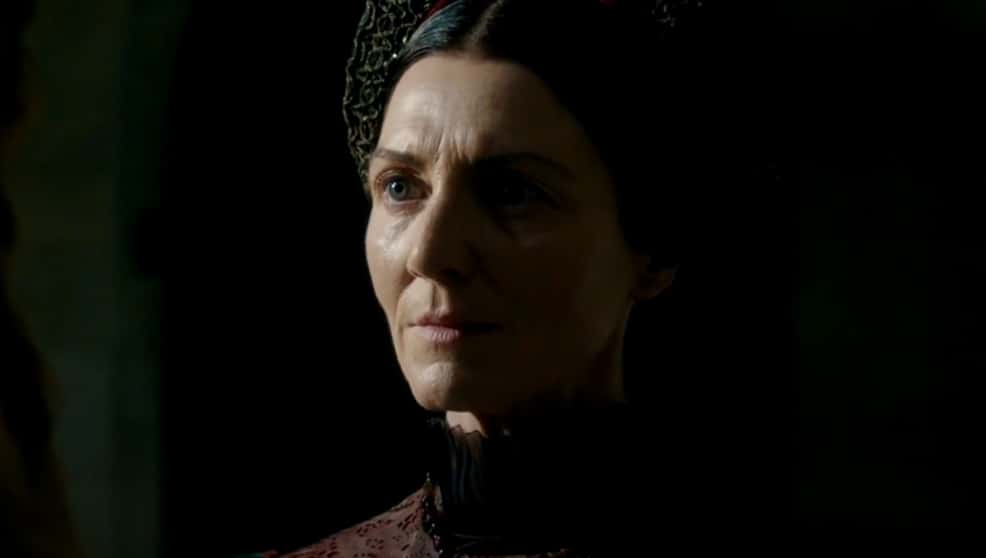 The White Princess (2017), Starz!
The White Princess (2017), Starz!
19. He Was The Perfect Choice
The Lancastrians hated Richard III, and anyone who liked his older brother hated him too—and Margaret of Beaufort saw an opportunity there. She had Henry VII pledge to marry Elizabeth of York, Edward's daughter. It was the best of both worlds! Henry of Lancaster and Elizabeth of York become king and queen, uniting the two houses and finally putting the Wars of the Roses to rest.
Though they'd never met, Henry pledged to marry Elizabeth of York when he returned to England. It was a good plan—but there was one major obstacle in the way. His name was Richard.
 The White Princess (2017), Starz!
The White Princess (2017), Starz!
20. His Plan Failed Horribly
Richard III was one of the most ruthless men in history, and he wasn't about to let some punk come in and take his throne. The first time Henry tried to land in England, Richard was there waiting for him. The invasion fell apart immediately. Henry's biggest ally, the Duke of Buckingham, was captured and executed, and Henry had to flee back to France.
OK, so Henry's first attempt at returning to England went horribly, but he was nothing if not persistent.
21. He Marched To Battle
Not long after that first, disastrous invasion, Henry tried again. This time, he successfully landed in Wales with his uncle Jasper and a small force of men. As he marched west towards England, he attracted more supporters—he was Welsh, after all. By the time he reached England, he'd amassed a measly force of about 6,000 men. It likely wasn't nearly enough to take on Richard III, but it was all Henry had.
One way or another, the Wars of the Roses were about to end for good.
22. He Was Screwed
When Henry VII met Richard III at the Battle of Bosworth Field, things did not look good. First of all, Richard's men vastly outnumbered Henry's. Plus, Richard had a whole second force, led by the Earl of Northumberland, in case things went squirrely. And on top of all that, Richard III was a battle-hardened warrior, whereas the youthful Henry had never seen combat.
Even when Henry's force seemed to gain an advantage, Richard wasn't scared. He simply signaled to Northumberland to join the fighting—and that's where things got interesting.
23. Richard Wanted To End Him For Good
For reasons that remain mysterious to this day, the Earl of Northumberland never joined the Battle of Bosworth Field. Instead, he left Richard and Henry to duke (or earl?) it out on their own. When Richard realized that help was not coming, he decided he had to end the battle immediately, or else risk losing everything. He gazed out across the fray and spotted young Henry Tudor's banner waving nearby.
Richard gathered his bodyguard about him and charged straight at that banner. He wanted to eliminate his rival personally—and he got extremely close to doing it.
24. He Knew When To Hide
With the battle going sideways, Richard knew the fastest way to end it was to slay Henry himself. But while Henry was nowhere near the warrior that Richard was, he was still as devious as he'd ever been. He saw Richard charging his way and jumped off his horse to hide among his men. Richard tore through Henry's bodyguard, slaying his standard-bearer and unhorsing the legendary knight Sir John Cheyne.
Richard fought like a man possessed, then he finally found who he was looking for—the terrified Henry Tudor, all but helpless.
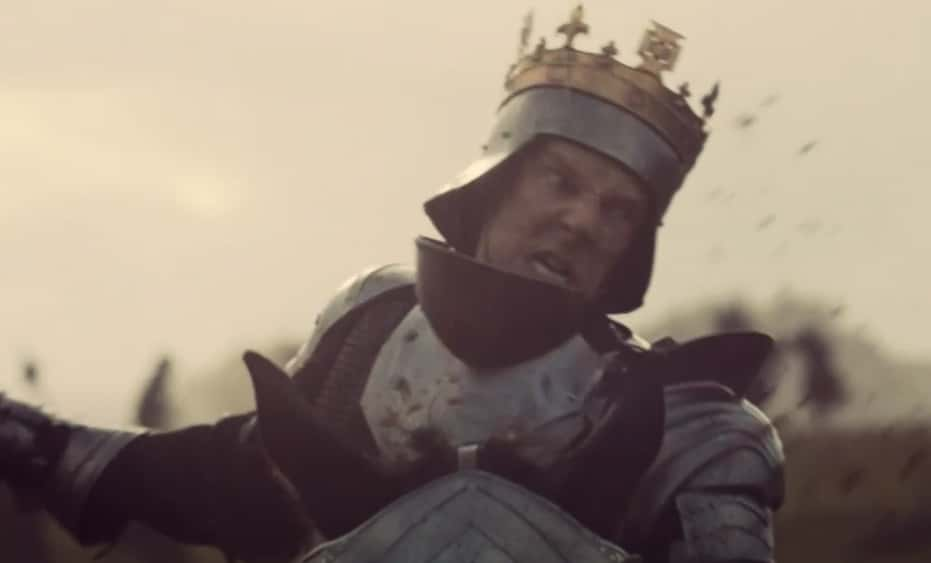 The Hollow Crown (2012–2016), BBC
The Hollow Crown (2012–2016), BBC
25. Richard Nearly Had Him
Richard III fought himself to within a sword's length of Henry Tudor. Just a few steps more, and the entire Tudor dynasty would be erased from history. But Henry's men recovered from Richard's charge, surrounded their ward, and slowly pushed the hated king back. Richard, who'd been so close, found himself further and further away from his quarry.
The ground beneath his horse's feet grew soft and marshy as Tudor's men pushed him back—then the disaster struck.
26. His Men Pushed Richard Back
From the safety of his ring of bodyguards, Henry Tudor watched Richard III fade into the distance—then he disappeared entirely. Richard's horse stumbled in the marsh and threw the king to the ground. Still, Richard III refused to yield. He gathered his remaining men around him and roared. "God forbid that I retreat one step. I will either win the battle as a king, or die as one".
And he did just that.
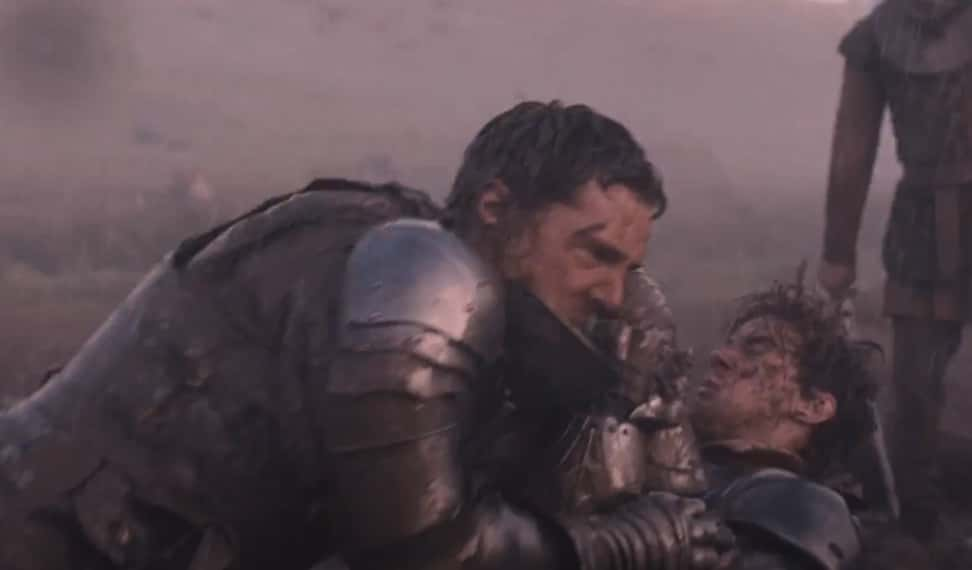 The Hollow Crown (2012–2016), BBC
The Hollow Crown (2012–2016), BBC
27. Against All Odds, He Won
One by one, Henry Tudor's forces slew Richard's bodyguard. Richard's bannerman lost the use of his legs, but he still kept the York banner aloft until one of Henry's men ran him through. Richard's close friends and greatest warriors were dispatched one by one until only the king remained. Still, Richard fought on, allegedly crying a single word over and over: "Treason". It didn't matter. Henry's men surrounded him, and one of them slammed a halberd into the king's helmet so hard, it crushed his skull. The battle was over.
Against all odds, Henry Tudor had won. Or should we say, King Henry VII of England, Father of the Tudor Dynasty. Yet, though the fighting had stopped, Henry VII was just getting started.
28. He Made A Genius Move
Henry's first act as the King of England was subtly brilliant. He declared himself king by right of conquest...retroactively dated to August 21, 1485—the day before the Battle of Bosworth Field. That meant anyone who had fought against Henry at the battle was technically guilty of treason. However, Henry said that he would pardon anyone who swore fealty to him, allowing them to keep their lands and their titles.
Just like that, Henry VII got the vast majority of his enemies to pledge themselves to him. But once that was done, he still had a promise to deliver on.
29. He Tied The Knot
With his throne secure, Henry made good on his pledge and married Elizabeth of York, finally uniting the houses of Lancaster and York. However, this wasn't some fairy tale union; at least, not for Elizabeth. For starters, she didn't get much choice in the matter—and when she finally got to meet Henry VII, it's hard to believe she was impressed...
 The White Princess (2017), Starz!
The White Princess (2017), Starz!
30. He Had A Face Made For Radio
A looker, Henry VII was not. He had a lanky frame, with beady blue eyes and horrific teeth highlighting a long, sallow face. He was also generally quite feeble and delicate—though mostly healthy, people often remarked that he looked ill. I can't imagine Elizabeth of York swooned when she first laid eyes on her husband. But looks aren't everything, and Henry VII had other assets to offer...
 The White Princess (2017), Starz!
The White Princess (2017), Starz!
31. He Had A Great Personality, At Least
Most contemporary accounts describe Henry VII as possessing an unusually magnetic personality. He was utterly brilliant, reserved yet friendly, decisive, and inspiring. All great traits to have in a king—and a husband for that matter. It didn't take long fore the new king and queen to fall madly in love with one another. However, there was one massive problem in this marriage.
You didn't forget about Henry's scheming mother Margaret, did you?
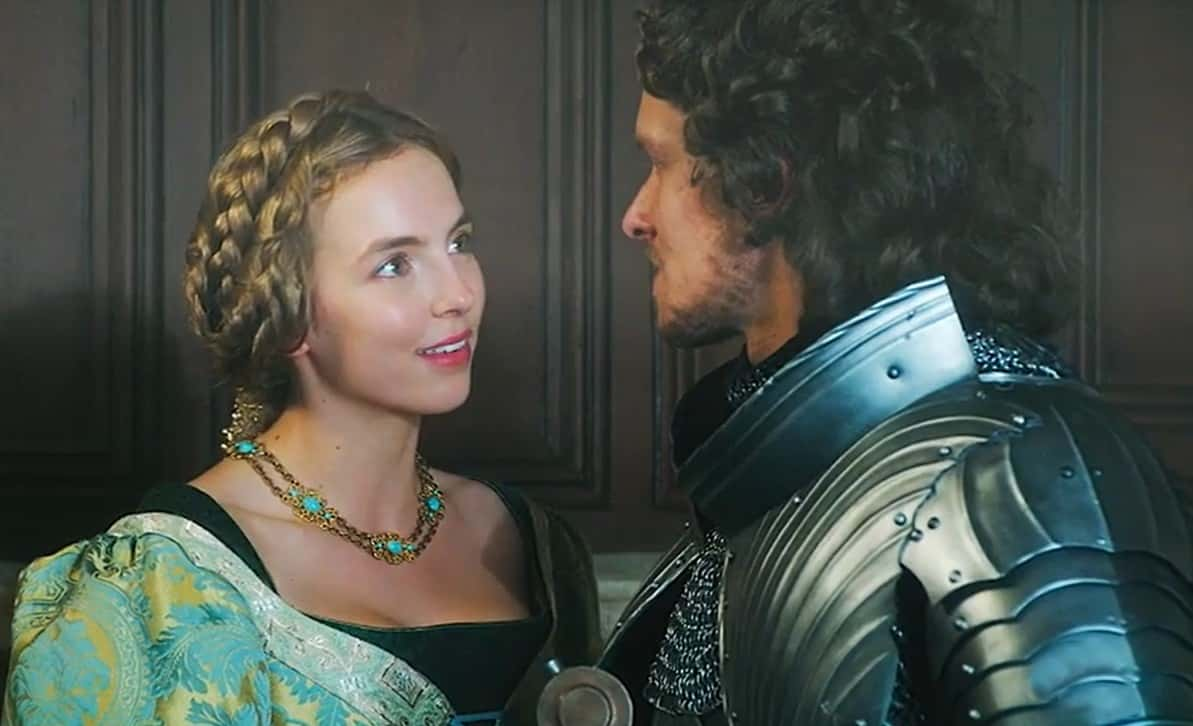 The White Princess (2017), Starz!
The White Princess (2017), Starz!
32. He Was A Momma's Boy
Credit where credit is due: Margaret Beaufort, once a destitute, 13-year-old widow with an infant son, had manipulated events behind the scenes until that boy was the King of Freaking England. However, now that she'd succeeded, she wasn't about to play second fiddle to some tart Elizabeth. Margaret made a point of wearing clothes that were every bit as fine as Elizabeth's, and only ever walked a half-step behind the queen.
I'm sure Henry felt amazing reuniting with his mother after 14 years—and as king no less! But Henry might have forgotten just how..".hands-on" his mother could be...
33. She Went With Him Everywhere
Especially in the early days of his reign, Henry's mother had a say on nearly all the matters of the English court. Her influence was so overt that even foreign visitors noted just how much power the king's mother had. She also rarely left her son's side, traveling with the royal couple basically everywhere they went.
Well, I hope she gave them a little privacy—because now that Henry's throne was secure, he had one thing on his mind: Making babies.
 The White Princess (2017), Starz!
The White Princess (2017), Starz!
34. He Welcomed A Boy
Henry knew that a crown claimed by conquest was never truly secure—if you took the throne by force, what's stopping someone else from doing the same to you? So, the first order of business was to have a son. That way, if anything happened to him, he at least had an heir. Well, unlike his successor, Henry VIII, this Henry had no trouble at all having a son.
Elizabeth gave birth nearly nine months to the day after their wedding. Henry saw this as a chance to cement the Tudor claim to the throne—but he might have gone a little overboard.
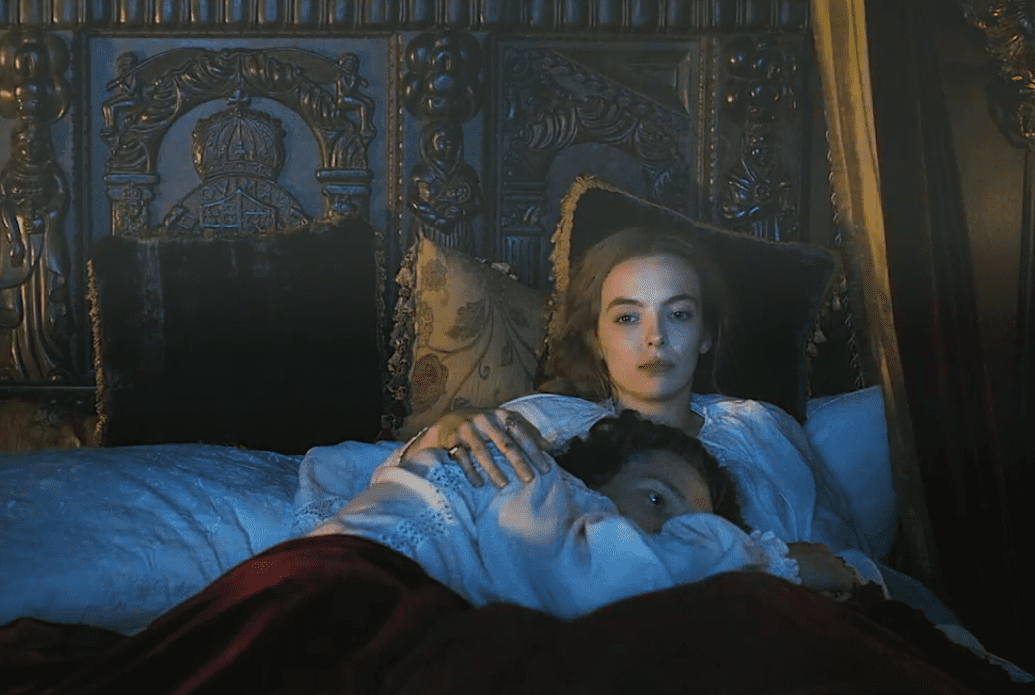 The White Princess (2017), Starz!
The White Princess (2017), Starz!
35. He Chose The Most British Name Possible
Henry named his firstborn son Arthur after the legendary King Arthur—what's more English than that? He hoped that little Arthur would carry on his name and help turn the Tudors into one of England's greatest dynasties. Well, the second part did happen—but there was a whole lot of chaos and tragedy to get out of the way first.
 The White Princess (2017), Starz!
The White Princess (2017), Starz!
36. He Had Terrible Luck With Fatherhood
Arthur was just the first of seven children for Henry VII and Elizabeth—but this couple had horrific luck when it came to parenthood. Three of those children perished in infancy. Their final child, Katherine, barely survived a week. Though many kings were callous, unfeeling parents, Henry took the loss of each child hard. It also didn't help that as the years passed, the weight of his crown started to take its toll.
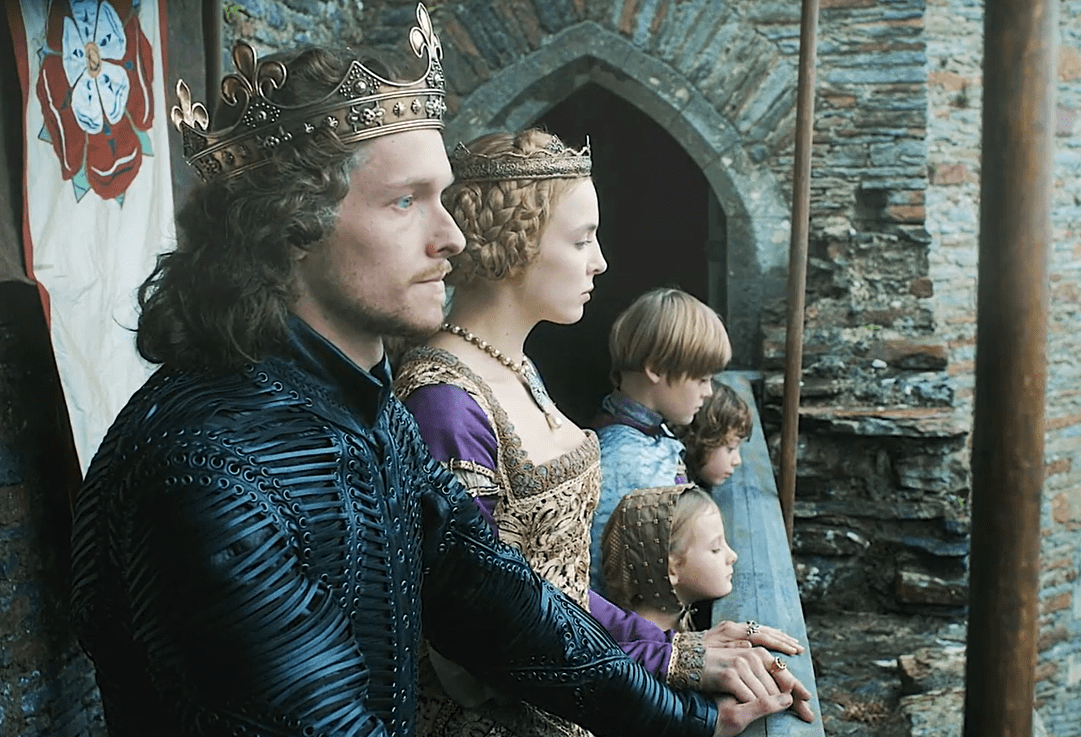 The White Princess (2017), Starz!
The White Princess (2017), Starz!
37. He Saw Enemies Everywhere
Henry VII was a deeply paranoid man. To be fair, the Wars of the Roses had seemed over for nearly a decade before the Battle of Bosworth Field, so he had a decent reason to think someone might try to come for his crown. Immediately after he took the throne, he tied up loose ends by capturing the oldest surviving heir of the House of York, the 10-year-old Edward, Earl of Warwick, and locking him up in the Tower of London.
But the House of York wasn't the only enemy after Henry VII's head. He fought for the throne—now he had to fight to keep it.
 The White Princess (2017), Starz!
The White Princess (2017), Starz!
38. He Had To Fight For His Throne
Henry VII spent the first 12 years of his reign putting down rebellions—and he did a much better job of it than Richard III. He managed to end most of these revolts without actually resorting to fighting. However, in 1487, a new rebellion sprouted up, and this one was different. These rebels claimed to have Edward of Warwick, heir to the House of York, leading them.
But wait, hadn't Edward locked Warwick up in the Tower of London? Something didn't make sense here...
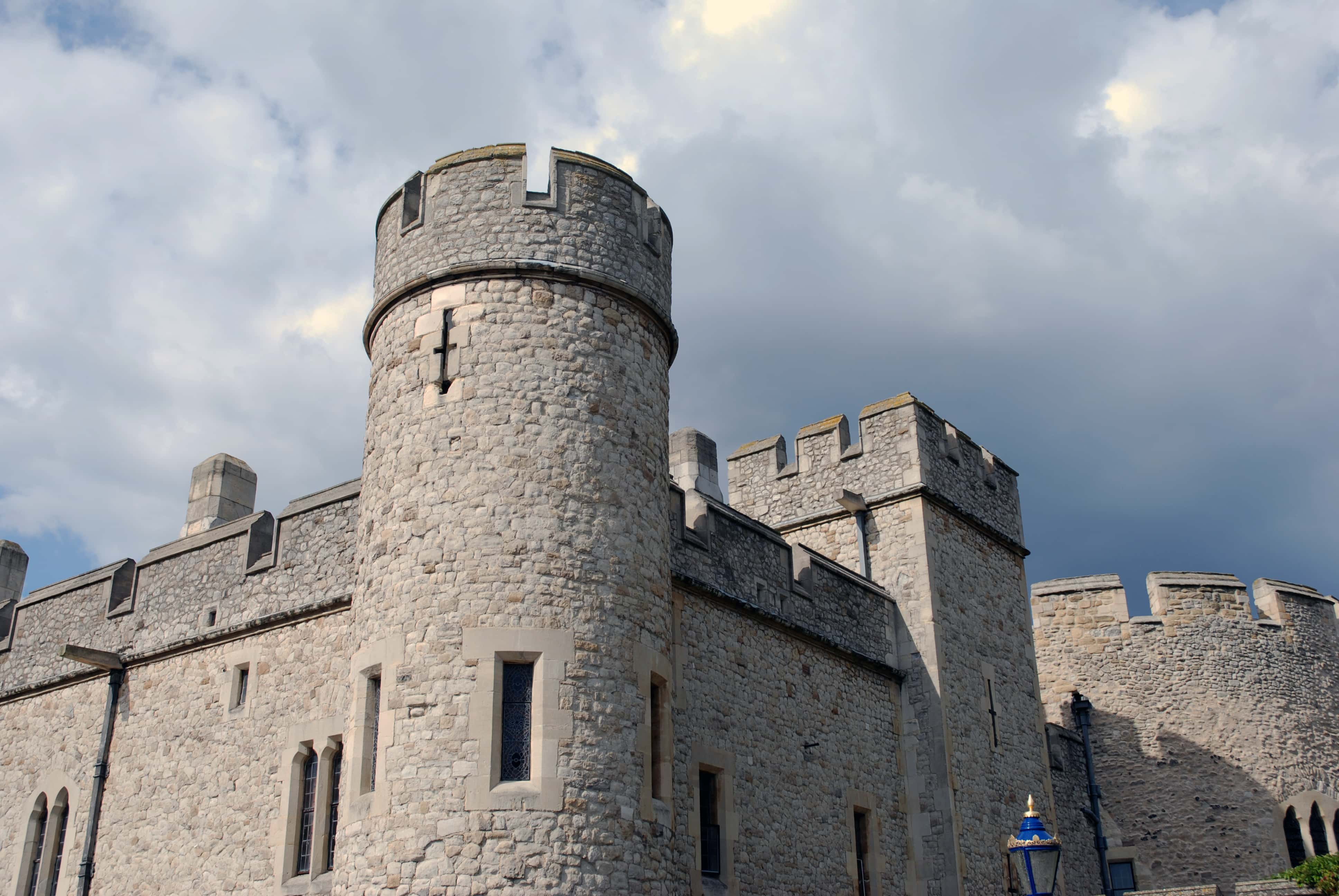 Wikimedia Commons, allen watkin
Wikimedia Commons, allen watkin
39. His Enemies Were Liars
It turns out, the Yorkists rebelling against Henry VII just...lied. They didn't have the Earl of Warwick; they just had a boy named Lambert Simnel, but that didn't stop them. From Ireland, the Yorkists declared "Edward" the rightful king and prepared to invade England yet again. It looked like the kingdom was in for an upheaval on the same scale as Bosworth Field—but Henry VII was kinda like DJ Khaled.
All he did was win.
 The White Princess (2017), Starz!
The White Princess (2017), Starz!
40. He Kept Winning
Henry's forces easily dispatched with the Yorkist rebels at the Battle of Stoke Field. Though often a forgotten engagement, Stoke was likely even bloodier than Bosworth Field. Once the fighting stopped, Henry's men captured the rebel leaders, including young Lambert Simnel himself. Those men prepared for execution—but Henry VII's response was something no one expected.
 The White Princess (2017), Starz!
The White Princess (2017), Starz!
41. He Showed Mercy
Henry VIII was one of the most merciless rulers in English history—but he didn't learn that from his dad. Henry VII shocked all of England by sparing the rebels. He pardoned the major Irish nobles involved in the uprising in a remarkable show of leniency. Some saw it as an act of weakness, others compassion, but Henry VII had seen enough bloodshed.
But what of Lambert Simnel, the boy at the head of it all? Henry had something in mind for him as well...
42. He Turned His Enemy Into A Cook
Lambert Simnel was just a 10-year-old commoner boy who happened to look like Edward of Warwick, he hadn't really done anything wrong. So after Henry captured Simnel, he put him to work. He brought the pretender back to England and put him to work in the royal kitchens, turning a spit. Sure, it wasn't as good of a job a "King of England," but Simnel could have done a lot worse.
With that rebellion dealt with, Henry VII could finally sit back and enjoy being king—for about five minutes.
43. He Wasn't Finished Yet
Lambert Simnel wasn't the only pretender after Henry's crown. In 1490, a young man appeared claiming to be Richard of Shrewsbury, one of the Princes in the Tower from whom Richard III had stolen the throne all those years ago. If he was who he claimed he was, he certainly had a better claim to the throne than Henry VII. This new rival made a deal with the King of Scotland and planned an invasion of England.
Didn't he hear what we said about Henry VII and winning?
44. He Captured A Missing "Prince"
"Richard of Shrewsbury" landed at Cornwall with a few thousand troops to try and take Henry VII's throne—but there would be no Cinderella upset this time. Henry's army quickly dealt with this new force and captured the mysterious "prince". He still claimed to be Edward IV's long-lost son—but Henry had disturbing methods to pull the truth out of him.
 The White Princess (2017), Starz!
The White Princess (2017), Starz!
45. He Put The Boy To The Question
Henry VII put the pretender prince to the question, and his questioners' brutal tactics revealed the truth. Richard of Shrewsbury was actually Perkin Warbeck, a Flemish commoner. He was just a crafty young man who heard the story of the Princes in the Tower and saw it as an opportunity to become King of England. Honestly, I respect the confidence.
But now, his plan had failed, and Warbeck was at Henry VII's mercy—yet once again, Henry managed to surprise everyone.
 The White Princess (2017), Starz!
The White Princess (2017), Starz!
46. He Wasn't Worried
Just as he had with Lambert Simnel, Henry VII showed mercy to Perkin Warbeck. Though he kept Warbeck under guard, the pretender was free to wander London. Henry even invited him to several royal banquets to show him off like some caged animal. Though Henry had been merciful, Warbeck chafed under his confinement. It was only a matter of time before something had to give.
 The White Princess (2017), Starz!
The White Princess (2017), Starz!
47. His Patience Ran Out
Henry VII was a merciful man—at first. However, as the years wore on, he grew more and more paranoid. People kept rising up against him, and it seemed like as long as the pretenders were alive, it wouldn't stop. The final straw came when Perkin Warbeck tried to escape London for the second time. Mercy was starting to become too much of a liability.
Henry's kindness reached its limit, and he had Warbeck executed at long last. The bloom was officially off the rose. Henry VII became moody, irritable, and cold. He only found solace in his family—though a terrible tragedy lay ahead.
 The White Princess (2017), Starz!
The White Princess (2017), Starz!
48. He Adored His Son
Prince Arthur was the apple of his father's eye. He was kind, gentle, and allegedly "extremely handsome". He represented the future of the Tudors, and both Henry and Elizabeth doted on the delicate boy. He was also their most valuable bargaining chip when it came to political alliances, so the king and queen set about finding a wife for their son.
They even found the perfect woman—though this marriage would turn out to be a nightmare.
49. He Found His Son A Bride
After both the Wars of the Roses and the Hundred Years' War, England needed allies. France was obviously out of the question, so Henry looked to Spain. He suggested that his son Arthur marry the Spanish king's daughter, Catherine of Aragon. Now, that name might be familiar to some as King Henry VIII's first wife. But wait, wasn't she supposed to marry Arthur? And whatever happened to Arthur anyway?
Tragically, Henry's luck was finally starting to run out, and he was in for a world of heartbreak.
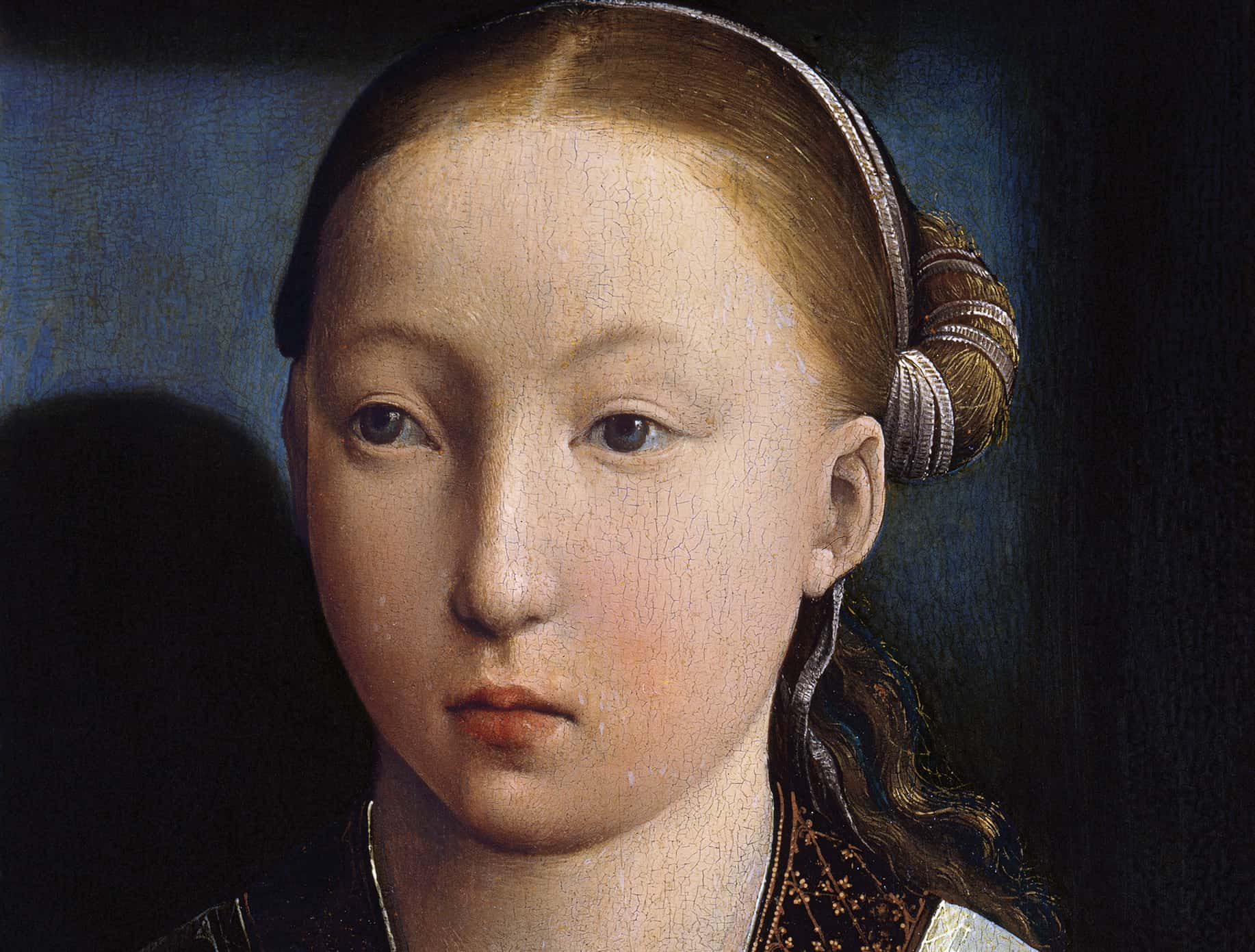 Wikipedia
Wikipedia
50. His Son Was A Loverboy
At first, it seemed like Arthur and Catherine had a fairy tale romance. Arthur was a hopeless romantic, and he wrote gushing love letters to his bride-to-be, who returned them in kind. But they were both mere teenagers, and had to wait until they came of age before they could actually marry. Then, in 1501, Arthur turned 15, and the time had finally come.
Both groom and bride were ecstatic—if only they'd known what was coming.
 The Spanish Princess (2019– 2020), All3 Media
The Spanish Princess (2019– 2020), All3 Media
51. His Son Walked Down The Aisle
Clad in luxurious white satin, Prince Arthur and Princess Catherine married in Saint Paul's Cathedral in late 1501. It was an extravagant affair with much fanfare and a choir of children serenading the new couple. But when night fell, the evening took a twisted turn.
 The Spanish Princess (2019– 2020), All3 Media
The Spanish Princess (2019– 2020), All3 Media
52. He Put Them To "Bed"
Arthur and Catherine may have only been teenagers, but no royal wedding was complete without a bedding ceremony—and yes, that's just what you think it is. Henry's mother Margaret prepared the bed, while Catherine was undressed, placed under a veil, and laid on the sheets. Henry and other gentlemen then escorted young Arthur to the bedroom...you can guess what happened next.
Such bedding ceremonies were meant to prove the consummation of the marriage, and they were as weird as they sound. It was an awkward start to Arthur and Catherine's union—but it was nothing compared to the nightmare on the horizon.
 The Spanish Princess (2017), All3 Media
The Spanish Princess (2017), All3 Media
53. It Was All Downhill From Here
1501 may have been the peak of Henry VII's reign. He and his wife had four children, their eldest had just married a beautiful young woman, and no rebellions had sprung up in years. Unfortunately, just as he was at his happiest, Henry's life took a chilling turn. It was all downhill after 1501—and it all began when his beloved son Arthur began feeling unwell...
54. His Son Fell Ill
Arthur appeared weak after his wedding, but it's likely everyone assumed he was simply recovering from the festivities. However, as the days went by, Arthur's condition grew no better. Henry sent him and Catherine to govern Wales, where mere months into their marriage, things took a grim turn. Arthur's condition suddenly grew much worse, and it had spread to his young bride as well.
All Henry could do was pray the illness was nothing—but for once, his prayers went unanswered.
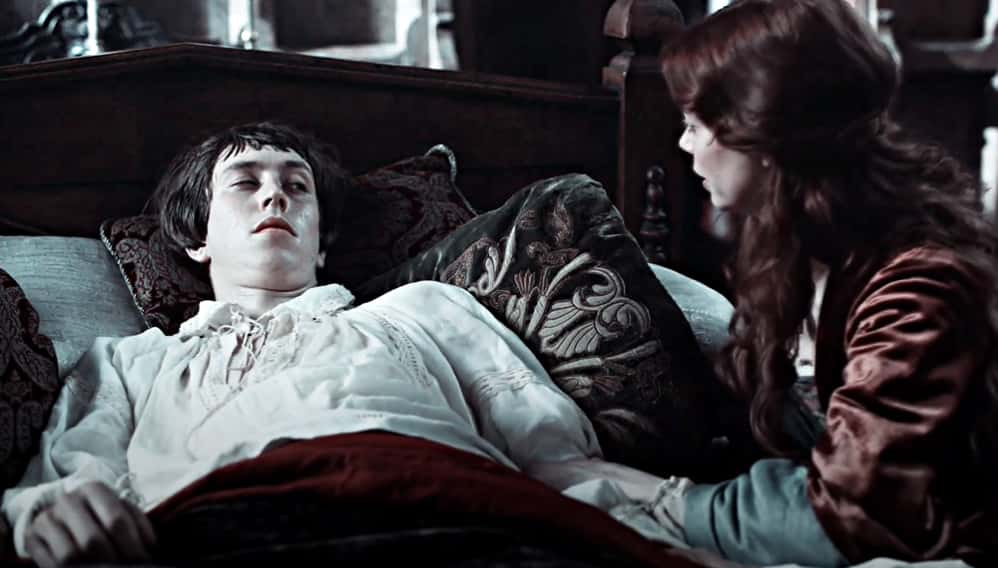 The Spanish Princess (2019– 2020), All3 Media
The Spanish Princess (2019– 2020), All3 Media
55. He Didn't Make It
The cause of Arthur and Catherine's illness remains unknown. Here's what we do know: Catherine recovered and Arthur did not. Arthur, the Prince of Wales, succumbed to his mysterious sickness in April 1502, six months shy of his 16th birthday. Arthur's attendants dispatched a messenger to London to share the devastating news. When Henry heard what happened to his son, his reaction was devastating.
56. He Broke Down
Henry VII was a famously stern and reserved monarch. It must have been terrifying, then, to see this stone of a man break down into wracking sobs upon hearing that his son Arthur had passed. In his grief, he called for his wife Elizabeth, who came to his chambers and comforted him. Soon enough, she had calmed him down enough to return to her rooms.
However, while Elizabeth had remained strong for her husband, she was hiding her true grief.
 The Spanish Princess (2019– 2020), All3 Media
The Spanish Princess (2019– 2020), All3 Media
57. They Comforted Each Other
As soon as Queen Elizabeth returned to her chambers, she collapsed and began to weep herself. In a heartbreaking twist, her attendant then sent for Henry, whom they roused from his bed to come and comfort his wife as she had just done for him. The couple remained together, holding each other in their arms as they wept for their son.
For his entire life, Henry VII had dealt with every trial life had thrown at him—but this was too much for him to bear.
 The Spanish Princess (2019– 2020), All3 Media
The Spanish Princess (2019– 2020), All3 Media
58. He Lost Control
For anyone in the palace, the days following Arthur's passing were truly disturbing. Henry almost never showed any emotion in public, but he couldn't contain his grief. He screamed and sobbed within earshot of his courtiers, who'd never seen this side of their king. The entire court waited anxiously for their ruler to recover—but fate wasn't finished throwing curveballs at Henry VII just yet.
Sadly, Arthur's demise was only the beginning.
59. He Tried To Have One More Child
Not long after Arthur's passing, Queen Elizabeth became pregnant with their seventh child. Perhaps a new baby might have roused Henry VII from his grief—but if that was the plan, it backfired horribly. Elizebeth was already 37, and in those days, childbirth was a harrowing event even for a woman in the prime of her life.
Soon after the child was born, it became clear that something was terribly wrong.
60. His Losses Kept Piling Up
Henry and Elizabeth's final child, Katherine, passed just days after her birth—but the parents didn't have time to mourn for her. Elizabeth had contracted a post-partum infection and was barely clinging to life. She hung on for nine agonizing days, but there was no recovering this time. Elizabeth of York passed on February 11, 1503, less than a year after Arthur.
These two losses in quick succession broke Henry for good—and his reign entered a dark new era.
 The Spanish Princess (2019– 2020), All3 Media
The Spanish Princess (2019– 2020), All3 Media
61. He Hid Himself Away
If Henry's attendants thought his reaction to his son's end was extreme, that was just the beginning. Elizabeth's death utterly shattered the aging king. He shut himself away in his rooms for days, allowing no one to see him. When he finally emerged, any kindness that had remained in him was gone—and England suffered for it. Yet even still, the blows were not yet finished falling for Henry.
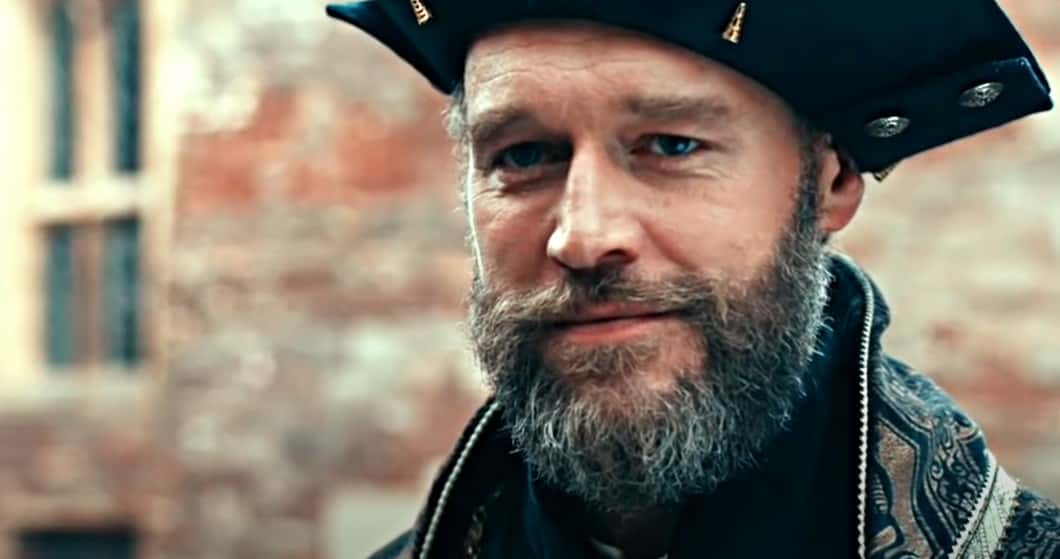 The Spanish Princess (2019– 2020), All3 Media
The Spanish Princess (2019– 2020), All3 Media
62. His Daughter Went Next
Though a seemingly cold and unfeeling man with his subjects, Henry VII showed great affection for his family. That makes sense, given his reaction to these losses. It also means his suffering grew even worse when he had to say goodbye to his daughter Margaret forever, mere months after his wife's passing. While Elizabeth was still alive, Henry had betrothed his daughter to the King of Scotland, and it was time to pay the piper.
Still in mourning, Henry escorted Margaret to the border, where they said goodbye one last time. He never saw her again—but the letters she wrote him only made the pain of losing her harder to bear.
63. She Wrote Him Heartbreaking Letters
From her new home in Scotland, Margaret constantly wrote to her father—and the contents of those notes must have broken his heart. Margaret wrote painfully of her homesickness, how she missed England and her family. Henry, though, could do nothing for her, as the marriage ensured a crucial alliance with Scotland. All he could do was send encouragement from afar, while back home in England, he became a twisted version of the man he once was.
64. He Was Done Playing Fair
Henry VII usually tried to do the right thing as a young ruler; that man was gone for good. In 1506, he captured the Duke of Burgundy, held him captive, and forced him to sign an unbelievably unfair trade agreement before letting him go. It was a shady move completely unlike Henry VII, and every other European kingdom rejected the treaty.
This is the kind of guy Henry had become—and that was just the tip of the iceberg.
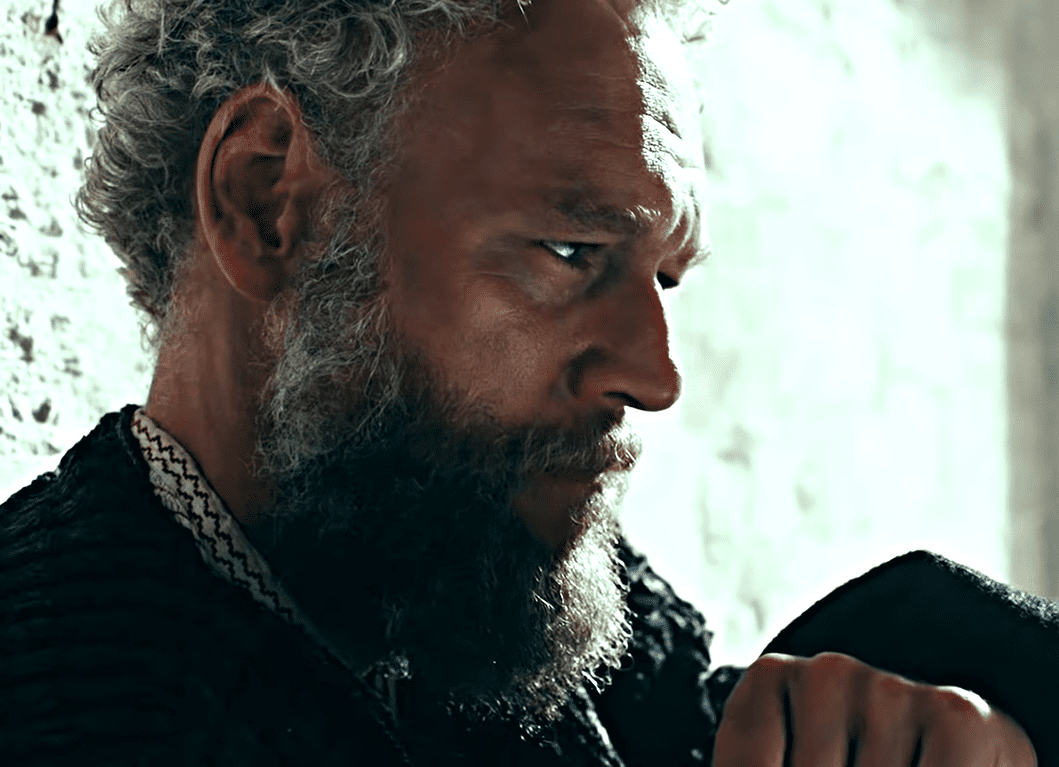 The Spanish Princess (2019– 2020), All3 Media
The Spanish Princess (2019– 2020), All3 Media
65. He Ruled With An Iron Fist
With his wife gone, Henry VII cared about only two things: Money, and power. His rule became brutally autocratic, and Henry resorted to the most ruthless methods imaginable to extort every last penny out of his people. He hired one of the most unscrupulous men in London, the lawyer Edmund Dudley, to help him fill England's coffers by any means necessary.
Within a matter of months, Dudley was maybe the most hated man in England—though Henry VII wasn't far behind.
66. His Methods Were Suspect
Together with Dudley, Henry turned the royal treasury into one big racket. Their methods looked more like a crime syndicate than a royal kingdom. They dug through England's laws and began enforcing every last tax law they could find. Plenty of people refused to pay, yet Henry simply threw them behind bars. If someone got extra uppity, Henry just might accuse them of treason and execute them.
I doubt Elizabeth of York would have liked the man her husband became—but she was gone. That's probably a good thing, though, because that way she never had to see who he planned to marry next.
 The White Princess (2017), Starz!
The White Princess (2017), Starz!
67. He Had To Do Something
Between losing his son and wife, Henry VII probably didn't have much time to think about the Spanish princess wandering his court. Catherine of Aragon, his son's teenaged widow, was still kicking around England. But with Prince Arthur gone, Henry's Spanish alliance was in jeopardy—so he came up with a disturbing plan to save it.
 The Spanish Princess (2019– 2020), All3 Media
The Spanish Princess (2019– 2020), All3 Media
68. He Had A Twisted Idea
Henry was now a widower, and his young daughter-in-law a widow. He still wanted someone in his family married to her to ensure a Spanish alliance. Do you see where this is going? For a time, Henry planned to marry Catherine of Aragon himself, despite the fact that she was decades younger than him and his own son's widow. Thank goodness he got cold feet and decided to marry her to his son Prince Henry instead.
Though, considering how that marriage turned out, I wonder if Catherine would have preferred the old geezer...
69. He Needed A Queen
Henry married Catherine of Aragon to his son, but his advisors still thought he needed a new queen. They presented several excellent diplomatic candidates, such as the Queen of Castile and the Duchess of Savoy. Eventually, he settled on Queen Joanna of Naples. He sent his attendants to Naples to report on her "physical suitability".
But everyone knew Henry's heart wasn't in it. His attendants had only to look at his description of his "ideal queen" to know that...
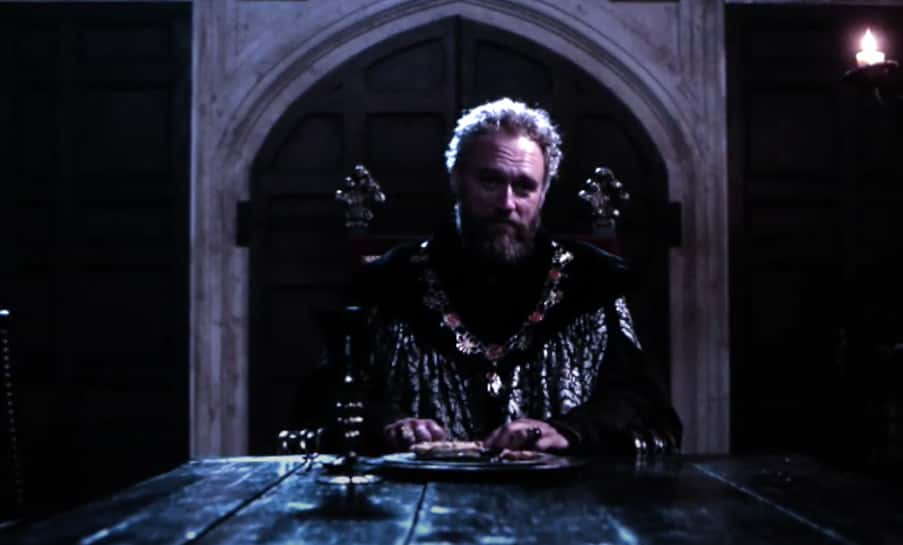 The Spanish Princess (2019– 2020), All3 Media
The Spanish Princess (2019– 2020), All3 Media
70. He Only Wanted One Woman
When Henry VII sent ambassadors to check out Joanna of Naples, he described what he was looking for, and it was heartbreaking. His letter simply described his departed wife, Elizabeth of York, to a tee. Clearly, Henry wasn't over her—and he never would be. He simply couldn't go through with marrying Joanna. In fact, he never remarried at all.
He dragged his feet on the issue for years. In the end, fate made his decision for him.
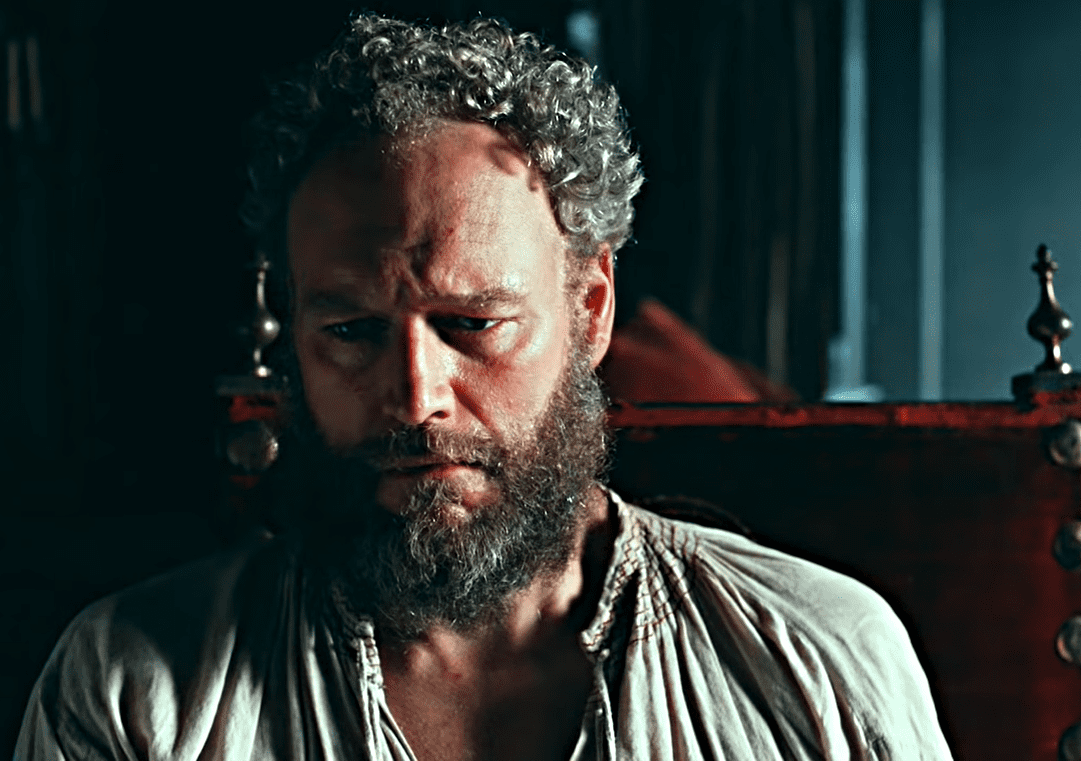 The Spanish Princess (2019– 2020), All3 Media
The Spanish Princess (2019– 2020), All3 Media
71. His Breath Ran Out
Henry VII, the upstart king who won the Wars of the Roses, succumbed to tuberculosis in April 1509, at 52 years old. His son, Prince Henry, became King Henry VIII at 17 years old. At first, the people rejoiced! They knew very little about this new king, but surely he couldn't be any worse than the miserly despot they'd just bade farewell.
However, the final years of Henry VII's relationship with his son had set the boy down a dark path.
72. He Took Over His Son's Life
In his grief over Arthur's passing, Henry VII threw himself into preparing his next son, Henry, for the throne. There was just one problem—he was absolutely terrible at it. Perhaps his grief shadowed his judgment, but Henry took over every aspect of his son's life. It wasn't long before the relationship between father and son grew strained.
73. He Was Completely Overbearing
Prince Henry had enjoyed considerable freedom while his older brother Arthur had been alive. Well, that was over. King Henry overprotected him to the point of insanity, terrified that any harm might befall him. Though Prince Henry loved nothing more than jousting and other extreme sports, his father completely forbade them. Henry's young friends started teasing him mercilessly, yet the king still refused to allow him to do anything even remotely dangerous, no matter how much he begged.
The younger Henry began resenting his father—but that wasn't even the worst of it.
 The Spanish Princess (2019– ), All3 Media
The Spanish Princess (2019– ), All3 Media
74. He Was A Terrible Father
While Elizabeth of York was alive, Henry's ledgers prove he was a loving father who doted on his children constantly. Once she was gone, that kind, loving father went with her. Henry not only barred his son from jousting, but he took to criticizing him over every little thing in public. He also micromanaged every aspect of his son's education. We assume he wanted to mold the prince into the best king he could be.
Clearly, it had the opposite effect. Henry VIII only wanted to be the exact opposite kind of man that his father was—and that was a very bad thing for England.
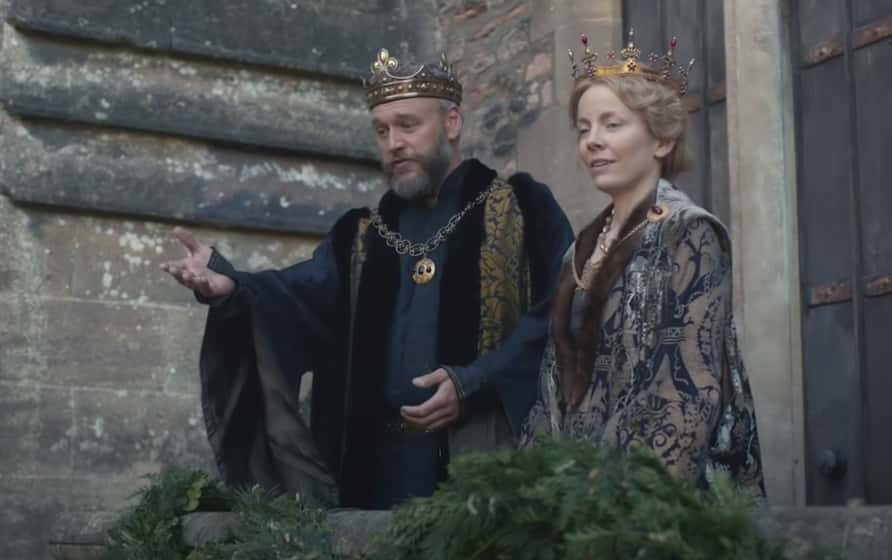 The Spanish Princess (2019– 2020), All3 Media
The Spanish Princess (2019– 2020), All3 Media
75. He Was Good With Money
Let's just say it: Henry VII was cheap. But, while history is littered with monarchs who waste away their kingdom's treasury over indulgent pursuits, Henry stands out as one of the few exceptions. While the Wars of the Roses had nearly bankrupted England, Henry's ruthless taxation and miserliness filled the kingdom's coffers and then some.
By the time of his passing, Henry left a vast fortune behind. Unfortunately, he left that money in the worst hands possible.
76. His Son Blew His Entire Fortune
The people of England spent years lamenting their penny-pinching king, and Prince Henry agreed with them. The heir resented everything his father stood for by the end, so guess what happened when he took over? Henry VIII became one of the most extravagant spendthrift kings the nation had ever seen! He spent all the money his father had saved on warships, palaces, and hedonistic feasts.
Henry VII tried to make his son a good king, but his atrocious tactics instead turned the boy into one of the worst kings England has ever seen. But at least Henry VIII was still a Tudor king. Another of Henry VII's decisions ended up dooming the Tudor dynasty forever.
77. His Arrogance Ended The Tudors
When Henry VII married his daughter Margaret to King James of Scotland, his attendants strongly warned him against it. If Margaret bore a son, that would bring the Scottish House of Stewart directly into the English line of succession. Henry laughed off such fears—unaware that their words would come true.
When Queen Elizabeth I, the last of the Tudors, passed without heirs, who should take the throne but King James VI of Scotland, from the House of Stewart. The Tudors disappeared from history, while the Stewart ruled England for the better part of a century.

